Latest
2024
Dec
Nov
Oct
Sep
Aug
Jul
Jun
May
Apr
Mar
Feb
Jan
2023
Dec
Nov
Oct
Sep
Aug
Jul
Jun
May
Apr
Mar
Feb
Jan
2022
Dec
Nov
Oct
Sep
Aug
Jul
Jun
May
Apr
Mar
Feb
Jan
2021
Dec
Nov
Oct
Sep
Aug
Jul
Jun
May
Apr
Mar
Feb
Jan
2020
Dec
Nov
Oct
Sep
Aug
Jul
Jun
May
Apr
Mar
Feb
Jan
2019
Dec
Nov
Oct
Sep
Aug
Jul
Jun
May
Apr
Mar
Feb
Jan
2018
Dec
Nov
Oct
Sep
Aug
Jul
Jun
May
Apr
Mar
Feb
Jan
2017
Dec
Nov
Oct
Sep
Aug
Jul
Jun
May
Apr
Mar
Feb
Jan
2016
Dec
Nov
Oct
Sep
Aug
Jul
Jun
May
Apr
Mar
Feb
Jan
2015
Dec
Nov
Oct
Sep
Aug
Jul
Jun
May
Apr
Mar
Feb
Jan
2014
Dec
Nov
Oct
Sep
Aug
Jul
Jun
May
Apr
Mar
Feb
Jan
2013
Dec
Nov
Oct
Sep
Aug
Jul
Jun
May
Apr
Mar
Feb
Jan
2012
Dec
Nov
Oct
Sep
Aug
Jul
Jun
May
Apr
Mar
Feb
Jan
2011
Dec
Nov
Oct
Sep
Aug
Jul
Jun
May
Apr
Mar
Feb
Jan
2010
Dec
Nov
Oct
Sep
Aug
Jul
Jun
May
Apr
Mar
Feb
Jan
2009
Dec
Nov
Oct
Sep
Aug
Jul
Jun
May
Apr
Mar
Feb
Jan
2008
Dec
Nov
Oct
Sep
Aug
Jul
Jun
May
Apr
Mar
Feb
Jan
2007
Dec
Nov
Oct
Sep
Aug
Jul
Jun
May
Apr
Mar
Feb
Jan
2006
Dec
Nov
Oct
Sep
Aug
Jul
Jun
May
Apr
Mar
Feb
Jan
2005
Dec
Nov
Oct
Sep
Aug
Jul
Jun
May
Apr
Mar
Feb
Jan
2004
Dec
Nov
Oct
Sep
Aug
Jul
Jun
May
Apr
Mar
Feb
Jan
2003
Dec
Nov
Oct
Sep
Aug
Jul
Jun
May
Apr
Mar
Feb
Jan
2002
Dec
Nov
Oct
Sep
Aug
Jul
Jun
May
Apr
Mar
Feb
Jan
2001
Dec
Oct
Sep
Aug
Jul
Jun
May
Apr
Mar
Feb
Tuesday, January 31, 2023
Music Week
 |
 |
 |
 |
 |
 |
 |
Expanded blog post, January archive (finished).
Tweet: Music Week: 72 (or 74) albums, 7 A-list (mostly hip-hop and/or African, where the intersection is large); desperately trying to wrap up my tracking of 2022, painfully aware of having fallen way short, but maybe 1652 records reviewed counts for something?
Music: Current count 39534 [39462] rated (+72), 39 [42] unrated (-3: 11 new, 28 old).
I gave myself an extra day this week, figuring that it would be nice to end the month on the end of the month, especially given that January is the effective end of the previous year, the obvious point to declare 2022 wrapped up, and to look ahead to 2023. I figured it would make a good cut-off point for my 2022 Music Tracking File, EOY Aggregate (with its poor cousin for Reissues/Historical). It would also provide a freeze point for my Music 2022 list (saving a snapshot for the moment while I continue to add late finds, up to the end of 2023). As it turns out, I've fallen far short of what I hoped to get done. But I've been desperate to make some sort of break, so this is it.
Needing some time to write this brief intro, I did my cutoff make at 6PM. I may sneak some more material in by the time I post this, but these stats are accurate at cutoff time: new releases reviewed 1652 (all 2022, including reissues/historical, plus 12/2021 releases, plus earlier 2021 not in previous tracking files); limited sampling: 4 (a possibly useful idea that I didn't pursue very hard). That may be an all-time record but I don't feel like spending the time to be sure. (A quick count of list item lines shows 1638 this year; previous high for frozen files was 1624 in 2020, followed by 1440 in 2021, 1334 in 2011, 1236 in 2010, 1222 in 2019, 1173 in 2014, 1147 in 2017, 1135 in 2007. Some caveats with these numbers I don't want to go into here.) Tracking file lists 5392 albums total. EOY Aggregate file lists 4520 new albums + 508 reissues/historical.
My EOY file for Jazz shows 74 new A/A- albums (+1 carried over), and 25 old music A/A- albums. For Non-Jazz, the numbers are 96 new (+ 6 carried over), 11 reissues/historical (+ 1 carried over). That's certainly the longest non-jazz A-list ever. You may recall that the non-jazz list was longer when I first compiled the file -- usually, jazz is longer to start, because I follow it more closely -- but the lists evened up while I was compiling Francis Davis Jazz Poll ballots. This week, all the new A- records are non-jazz (mostly African and/or hip-hop), but that's only about a third of the margin.
The EOY Aggregate is now up to 565 lists (this file includes links to most of them, although for some you need to pass through intermediaries), including lots of individual top-tens (everyone from the Francis Davis Jazz Poll, a fair number of ballots from PJRP (Pazz & Jop Rip-Off Poll) and EW (Expert Witness) polls, other jazz critics I could find, occasional lists like most of the Rolling Stone staff lists. I've included all but metal-exclusivists from the Album of the Year lists, most of the extra lists compiled by Metacritic, and a bunch of lists from Acclaimed Music Forums (incomplete, as I ran out of time midway through rechecking them).
The following are some EOY lists that have influenced my recent listening:
- Robert Christgau: Dean's List: 2022: archived here and here.
- Brad Luen: The 12th Annual Expert Witness Poll. Luen also wrote: 40 favorite albums of my 2022.
- Pazz & Jop Rip-Off Poll: Google spreadsheet.
- Aquarium Drunkard.
- Brazil Beat: Favorite Albums of 2022.
- Free Jazz Blog's Top 10s of 2022.
- Hip-Hop Golden Age.
- Pan African Music.
- Ye Wei Blog aka Wild Taste.
I voted in the PJRP and EW polls. Statistics professor Brad Luen published some centricity/eccentricity data, which rated me the 3rd most eccentric of EW's 43 voters. I probably would have been spared notice (he only listed the top 5) had I not kicked Big Thief off my ballot in favor of William Parker's Universal Tonality -- my top historical release of the year, for which there was no separate category in this poll. The reason I dropped Big Thief is that, while I liked it a lot when I reviewed it, I didn't buy it, and never heard it again since. That's true of a lot of records (including Beyoncé's, which I did buy but still haven't replayed), but I felt that for one certain to finish that high, I should be more sure of myself.
A stray comment in the thread complained that "like half the people didn't even put [Beyoncé] on their ballot." Luen replied: "It did great among FB voters but was soft among non-FB voters (who trend old/grumpy/hetero)." (Luen collected ballots from Facebook and Substack comments as well as direct email.) Having published several ballots already, I took the easy route and emailed my ballot in, thus adding to the demographic Luen identified.
For the record, my albums ballot was (the bracket figure is how many other people voted for the album, and their points):
- The Regrettes: Further Joy (Warner) 16 [23/2]
- Tyshawn Sorey Trio + 1: The Off-Off Broadway Guide to Synergism (Pi) 15 [8/1]
- William Parker: Universal Tonality (2002, Centering/AUM Fidelity) 13 [-]
- Gonora Sounds: Hard Times Never Kill (The Vital Record) 11 [10/1*]
- Dave Rempis/Avreeayl Ra Duo: Bennu (Aerophonic) 10 [-]
- Omri Ziegele Where's Africa: That Hat (Intakt) 8 [-]
- Charlotte Adigery & Bolis Pupul: Topical Dancer (Beewee/Because Music) 7 [15/2]
- Saba: Few Good Things (Saba Pivot) 7 [7/1]
- Bob Vylan: Bob Vylan Presents the Price of Life (Ghost Theatre) 7 [21/3]
- Nilufer Yanya: Painless (ATO) 6 [55/5]
*Totals for Gonora Sounds not given, so I'm making the most reasonable guess.
Only one of my four jazz albums got another vote (8/1), but all six of my non-jazz picks got other votes (123/13). I'm not sure how the eccentricity figure is calculated, but this doesn't strike me as extremely eccentric. (By the two more eccentric scores were by voters who each voted for nine albums no one else voted for, and voted for the same tenth album, which no one else voted for.) What is odd, in this crowd at least, is that none of my ten albums appeared on Christgau's Dean's List (his top 86 albums for the year, although close to a quarter of them came out in 2021 or earlier). On the other hand, 42 + 4 (carry overs) of his albums appeared on my A-list, so the split at the top is hard to explain.
There is much more running through my head that I could write, not least thoughts triggered by Christgau's year-end essay, and by especially the first of two pieces he reprinted on Tom Verlaine, who died at 73 over the weekend. One part of the reason I moved to New York City in 1977 was Christgau's sense of excitement over the new, still-unrecorded bands centered around CBGB's. I never saw Television, but I was witness to Christgau's first spin of Marquee Moon, which knowing the band as he did, he instantly thrilled to while I was trying to puzzle out not just the music but his reaction. I hadn't given any thought to how I might write a memoir of those years -- I've been focusing more on much earlier periods -- but there's a fair amount to delve into there.
In rushing to get this out, I'm leaving the usual bookkeeping unsettled. I'll have to catch up with that later. (Looks like I never did December, either.) It's also possible I won't declare 2022 over quite yet, but I'm definitely taking a break, especially from deadlines.
My mother was born 110 years ago today, in 2013, the youngest of ten children, the eldest born in 1900. Her parents had died before I was born, but my father's parents were born in 1894/1895, and I knew them fairly well before my grandfather died in 1964. Through them I can reach quite a ways back into history. They've made me sensitive to how much change the last few generations have lived through, and thereby how poorly the ideas and ideals they grew up with fare in today's world. (I may seem old and grump to Luen, but believe me, I know much older and grumpier.)
My mother died in 2000, three months after my father (who was ten years younger, but went first). I made Chinese food for my mother's last birthday. Since then I've often made a special dinner to commemorate her birthday: either Chinese, or the old fare of Arkansas (where fried chicken was the dish you served guests). I couldn't do that this year given the crunch of closing out this post. But that's my next project: Thursday, a belated dinner party, and a much needed break from several months of hacking my way through the year's recorded music. I don't see myself as ever approaching this year's stats again. Regardless of whether I set a personal record this year, what I am most certain of is that there's never been a year before 2022 where I've not heard more music. And that's only going to increase -- at least as long as the electricity stays on.
New records reviewed this week:
- Ab-Soul: Herbert (2022, Top Dawg): [sp]: B
- Archers of Loaf: Reason in Decline (2022, Merge): [sp]: B+(*)
- Authentically Plastic: Raw Space (2022, Hakuna Kulala): [sp]: B+(**)
- Avantdale Bowling Club: Trees (2022, Years Gone By): [sp]: B+(***)
- Backxwash: His Happiness Shall Come First Even Though We Are Suffering (2022, Ugly Hag): [sp]: B+(**)
- Batida: Neo Colonialismo (2022, Crammed Discs): [sp]: B+(**)
- Ecko Bazz: Mmaso (2022, Hakuna Kulala): [sp]: B+(**)
- Bruno Berle: No Reino Dos Afetos (2022, Far Out): [sp]: B+(**)
- Blackpink: Born Pink (2022, YG Entertainment): [sp]: B+(***)
- The Bobby Lees: Bellevue (2022, Ipecac): [sp]: A-
- Bodysync: Radio Active (2022, self-released): [sp]: B
- Apollo Brown & Philmore Greene: Cost of Living (2022, Mello Music Group): [sp]: A-
- Buruklyn Boyz: East Mpaka London (2022, self-released): [sp]: B+(**)
- Sarah Mary Chadwick: Flipped It (2022, Kill Rock Stars, EP): [sp]: B
- Che Noir: The Last Remnants (2022, TCF Music Group, EP): [sp]: B+(**)
- Alaide Costa: O Que Meus Calos Dizem Sobre Mim (2022, Tres Selos): [sp]: B+(***)
- DJ Lag: Meeting With the King (2022, Ice Drop): [sp]: B+(***)
- Focalistic: Ghetto Gospel (2022, 18 Area Holdings): [sp]: B+(***)
- Mabe Fratti: Se Ve Desde Aquí (2022, Unheard Of Hope): [sp]: B+(**)
- Moktar Gania & Gwana Soul: Gwana Soul (2022, MusjoMusic/Nuits d'Afrique): [sp]: B+(***)
- George: Letters to George (2022 [2023], Out of Your Head): [cd]: B+(***)
- Hallelujah the Hills: The Music of the Beatles as Channeled in 1958 by the Echo Lake Home for the Potentially Clairvoyant (2022, Hallelujah the Hills): [bc]: B+((*)
- Marina Herlop: Pripyat (2022, Pan): [sp]: B+(*)
- Honey Dijon: Black Girl Magic (2022, Classic): [sp]: B+(***)
- Horse Lords: Comradely Objects (2022, RVNG Intl): [sp]: B+(***)
- Ryoji Ikeda: Ultratronics (2022, Noton): [sp]: B+(*)
- Gisle Røen Johansen: Kveldsragg (2018 [2022], Jazzaggression): [sp]: B+(***)
- KMRU & Aho Ssan: Limen (2022, Subtext): [sp]: B+(*)
- Knucks: Alpha Place (2022, Nodaysoff): [sp]: B+(**)
- Pierre Kwenders: José Louis and the Paradox of Love (2022, Arts & Crafts): [sp]: B+(*)
- Anysia Kym: Soliloquy (2022, self-released, EP): [bc]: B+(*)
- Mike LeDonne/Eric Alexander/Jeremy Pelt/Vincent Herring/Kenny Washington/Peter Washington: The Heavy Hitters (2022 [2023], Cellar): [cd]: B+(**)
- Leroy [C0ncernn]: Dariacore 3 . . . At Least I Think That's What It's Called? (2022, self-released): [sp]: B+(***)
- Leroy: Dariacore (2021, self-released): [sp]: B+(**)
- Leroy: Dariacore 2: Enter Here, Hell to the Left (2021, self-released): [sp]: B+(**)
- Zack Lober: No Fill3r (2022 [2023], Zennez): [cd]: B+(*)
- Logic: Vinyl Days (2022, Def Jam): [sp]: B+(**)
- Doug MacDonald: Big Band Extravaganza (2022 [2023], DMAC Music): [cd]: B [01-30]
- Madalitso Band: Musakayike (2022, Bongo Joe): [sp]: A-
- Kali Malone: Living Torch (2022, Portraits GRM): [sp]: B
- Marlowe: Marlowe 3 (2022, Mello Music): [sp]: A-
- Martha: Please Don't Take Me Back (2022, Dirtnap): [sp]: B+(*)
- The Master Musicians of Jajouka Led by Bachir Attir: Dancing Under the Moon (2022, Glitterbeat, 2CD): [sp]: B+(*)
- MC Bin Laden: Invasao Dos Fluxos (2022, Kondzilla): [sp]: B+(***)
- Metropolitan Jazz Octet: The Bowie Project (2020-22 [2023], Origin): [cd]: B
- Moonchild Sanelly: Phases (2022, Transgressive): [sp]: A-
- Nerves Baddington: Micro (2022, Apt. B Productions): [sp]: B+(***)
- Nerves Baddington: Macro (2022, Apt. B Productions): [sp]: B+(***)
- Noori & His Dorpa Band: Beja Power! Electric Soul & Brass From Sudan's Red Sea Coast (2022, Ostinato): [sp]: B+(***)
- Nord1kone/DJ Mrok: Tower of Babylon (2022, SplitSLAM): [sp]: A-
- Obongjayar: Some Nights I Dream of Doors (2022, September): [sp]: B+(**)
- Ozzy Osbourne: Patient Number 9 (2022, Epic): [sp]: B-
- Oùat: Elastic Bricks (2021 [2022], Umlaut): [sp]: B+(**)
- Rema: Rave & Roses (2022, Marvin/Jonzing World): [sp]: B+(***)
- Dawn Richard & Spencer Zahn: Pigments (2022, Merge): [sp]: B
- Rizomagic: Voltaje Raizal (2021, Disasters by Choice): [bc]: B+(**)
- Séketxe: Funjada (Kandendue Kaluanda) (2022, Chasing Dreams): [sp]: B+(**)
- ShrapKnel: Metal Lung (2022, Backwoodz Studioz): [sp]: B+(*)
- Somadina: Heart of the Heavenly Undeniable (2022, self-released): [sp]: A-
- Styrofoam Winos: Styrofoam Winos Play Their Favorite M. Hurley Songs (2022, Sophomore Lounge): [bc]: B+(*)
- They Hate Change: Finally, New (2022, Jagjaguwar): [sp]: B+(*)
- Pat Thomas: Pat Thomas Plays the Duke (2021 [2022], New Jazz and Improvised Music): [sp]: B+(*)
- Wau Wau Collectif: Mariage (2022, Sahel Sounds): [sp]: B+(*)
Recent reissues, compilations, and vault discoveries:
- Terry Allen & the Panhandle Mystery Band: Smokin the Dummy (1980 [2022], Paradise of Bachelors): [sp]: B+(**)
- Terry Allen & the Panhandle Mystery Band: Bloodlines (1983 [2022], Paradise of Bachelors): [sp]: B+(***)
- Broadcast: Maida Vale Sessions (1997-2003 [2022], Warp): [bc]: B+(*)
- Disco Reggae Rockers (1973-86 [2022], Soul Jazz): [sp]: B
- Iftin Band: Mogadishu's Finest: The Al-Uruba Sessions (1982-87 [2022], Ostinato): [sp]: B+(***)
- Rise Jamaica! Jamaican Independence Special (1962 [2022], Trojan, 2CD): [sp]: B+(***)
Old music:
- Mon Laferte: Mon Laferte Vol. 1 (2015, Intolerancia): [sp]: B+(*)
Unpacking: Found in the mail last week:
- Leap Day Trio: Live at the Cafe Bohemia (Giant Step Arts) [02-24]
- Ben Rosenblum Nebula Project: A Thousand Pebbles (One Trick Dog) [02-10]
- Jim Snidero: Far Far Away (Savant) [02-03]
Sunday, January 29, 2023
Speaking of Which
I thought I'd spend this last week of January wrapping up my music review of 2022, and indeed I'm giving myself an extra day, so don't expect Music Week until Tuesday, probably late. But I had a few tabs open, and made the usual rounds, and this is what I came up with.
Maggie Astor: [01-25] G.O.P. State Lawmakers Push a Growing Wave of Anti-Transgender Bills: Subhed describes this as "part of a long-term plan," but I don't see much planning. Rather, it feels like a combination of latching onto any sort of bigotry that still seems credible, and using that to hype up fears that have no basis in reality. I also suspect they've gotten a boost by overly aggressive transgender supporters -- clever of them to latch onto the much more popular LGB bandwagon -- where both sides get blown out of proportion. True, I am surprised at how often I run into trans or non-binary performers in music, but I've never even heard of an actual case the "save women's sports" might apply to.
Jelani Cobb: [01-29] Ron DeSantis Battles the African-American A.P. Course -- and History: "The state's intent seems to be to provide white Floridians, from a young age, with a version of history that they can be comfortable with, regardless of whether it's true." More DeSantis:
Branko Marcetic: [01-28] Ron DeSantis Prefers to Call His War on Workers a War on "Wokeness".
Charles P Pierce: [01-24] Florida Historian Worries that Condemning the Lynching of a Pregnant Woman Is Outlawed.
Dave DeCamp: [01-29] Air Force General Predicts the US Will Be at War With China in 2025. This is pretty chilling. I don't see it happening, but this sort of planning can easily become a self-fulfilling prophecy. Also on China:
Ben Norton: [01-23] Exaggerating China's military spending, St. Louis Fed breaks all statistical rules with misleading graph. The graph appears to show China's military spending zooming way past US spending, where actually the two are plotted on completely different Y-axes. US spending, if you believe these numbers (they look suspiciously low to me) is still over three times as much as China's.
Connor Echols: [01-27] Diplomacy Watch: Switzerland weighs break with policy of neutrality. Germany and US agreed to send tanks to Ukraine. Switzerland agreed to allow re-export of Swiss-made weapons to Ukraine. Estonia and Latvia withdrew their Moscow ambassadors. None of these moves offer hope of a ceasefire and negotiated peace. Echols also wrote: [01-26] US weapons makers report 'all-time record orders' since Russian invasion: Just in case you've wondered, cui bono? More on the ongoing war:
Hrair Balian: [01-28] Will the war in Ukraine inevitably freeze? "With the conflict more likely than not headed for stalemate, how long can the US maintain support in the absence of negotiations?" Proposes four scenarios that could push the US into suing for peace, but I don't see any of them as more than remotely likely (Russian battlefield gains; nuclear war becomes imminent; China moves against Taiwan; Republicans defund the war to spite Biden). No one around Putin will admit it, but Russia is much more likely to find the war insupportable, if not this year than somewhere down the road. What the US needs to realize is not that the war isn't affordable but that it is hopeless and unnecessary. Still, that realization needs to sit in on both sides before much progress can be made. Meanwhile, both sides desperately try to impress the other with their stubborn determination.
Dave DeCamp: [11-25] Lockheed Says It's Ready With F-16s If US and Allies Choose to Send Them to Ukraine. And now that Ukraine is getting US and German tanks, Zelensky has already moved on to requesting F-16s. Cheering him on: [01-28] At the Pentagon, push to send F-16s to Ukraine picks up steam.
Charles W Dunne: [01-29] Arab, Israeli positions on Ukraine continue to frustrate US: Turns out America's "closest ally" isn't much help here. Similarly, America's closest Arab allies have business interests more closely aligned with Russia. I wouldn't say that support on Ukraine should be a litmus test of alliance, but non-support should tone down the hyperbole.
Jen Kirby:
[01-25] One year in, both Ukraine and Russia still think they can win: Or, more accurately, neither realize that they've already lost. The only winners are US and EU arms merchants.
Anatol Lieven:
[01-26] Concerning the arguments for 'total defeat' of Russia: "They fall apart at the slightest examination, but are dominating the Ukraine discussion nonetheless."
[01-26] First artillery, then tanks, then warplanes, then what? "The US slow climb up the escalatory ladder in Ukraine appears to be moving a bit faster -- without a lot of talk about consequences."
Blaise Malley: [01-27] New senator JD Vance leads GOP effort to put Ukraine aid under a microscope: Given the amount of money the US is putting into Ukraine, and given that the organizations involved have never been very good at accounting, I doubt they'll need much of a microscope' to find evidence of waste and corruption. Of course, had they paid attention to Afghanistan and Iraq, they would have found plenty, but those wars didn't break along partisan lines, and the waste and corruption was easily written off as cost of doing business. That's harder to do once it gets mentioned, which is the point of this notice.
Branko Marcetic: [01-29] Ukraine's Postwar Reconstruction Has Big Business Licking Its Lips: Good. Maybe we've finally found a business lobby that can compete with the arms merchants, to at least make the idea of negotiating an end to the war more palatable. After all, if we've learned one thing from Iraq and Afghanistan, it's that it's impossible to rebuild a country while it's still wracked by war.
Eric Foner: [01-23] The Constitution Has a 155-Year-Old Answer to the Debt Ceiling. The 14th Amendment specifies that: "The validity of the public debt of the United States shall not be questioned." Republican efforts to force the government to default on its debt are, therefore, illegal under the Constitution. By the way, there is more in the 14th Amendment that Republicans should study up on. Also:
Jamelle Bouie: [01-20] You Can Let Republicans Destroy the Economy, or You Can Call Their Bluff. You might also note that they never pull this shit when one of their own is President.
Paul Krugman: [01-19] Don't Try to Appease Economic Terrorists.
Thomas B Edsall: [01-18] 'You Don't Negotiate With These Kinds of People': This starts out not with the debt limit but with the House Freedom Caucus, but the same point applies. The Republican Party is rife with bomb throwers, focused on their narrow goals and insensitive to whatever collateral damage they cause.
Stephanie Kelton: [01-22] These Are the Times that Try Men's Souls: If I'm reading this correctly, Kelton is offering another way around the debt limit, which is to just write checks for the allocated expenses, and not try to offset them by issuing additional securities.
Lawrence B Glickman: [01-21] The Real Origins of the "Democrat Party" Troll. It first sounds like a verbal tic, but you hear it so often, it finally registers as an easy way to identify that the speaker is under the spell of the Republican Party. "Perhaps the answer lies in the face that many critics of the New Deal were also critics of democracy." And perhaps that's why the slur has become ever more common: Republicans have given up on even giving lip service to democracy.
Jonathan Guyer: [01-27] Why violence in Israel and Palestine has spiked in the last 48 hours. Only thing surprising here is that it's not just Israelis on the warpath. More on Israel:
Michael Arria: [01-26] 'Many careers are destroyed by those seeking to silence any criticism of Israel's brutality': Ken Roth's case is just the tip of iceberg.
Dave DeCamp: [01-29] Israel Was Behind Drone Attack on Iranian Military Facility.
MEE Staff: [01-27] Israel launches air strikes on Gaza, as rockets fired after deadly Jenin raid.
Yumna Patel: [01-29] Israeli government calls for retribution and collective punishment in wake of Jerusalem shooting: "The measures announced by Netanyahu's cabinet were slammed by experts as collective punishment and clear violations of international human rights law." One of the announced plans is "to make it easier for Israeli citizens to carry firearms." Already, there are reports that "144 settler attacks were carried out in a single night on Saturday in the Nablus area alone."
Robert Hunziker: [01-27] Doomsday Clock Jitters and "How to Fix a Broken Planet": The latest update of the Bulletin of Atomic Scientists' "doomsday clock" was played for laughs on late night shows. There are fundamental problems with it, which you'd expect atomic scientists, of all people, to figure out. The first is that "doomsday" is not very well defined. Even in its original context -- nuclear war -- does it mean total annihation, or would more localized outbreaks suffice? If the latter, did Chernobyl or Fukushima cross that threshold? If not, why not? They are comparable to nuclear bombs: in some ways less destructive, in others worse, but on the same qualitative scale. They do have the advantage of looking like accidents, so are unlikely to cascade like the actual use of nuclear weapons could, or like war between nuclear-armed powers with conventional weapons might. The main reason they advanced the clock to its most alarming level ever is that we're experiencing such a war between NATO and Russia -- albeit, for now, with Ukraine as a buffer. Still, the closer you get to "midnight," the more dubious the scale seems. The unveilers as much as admitted this point by pausing in silence for more than the 90 seconds they allowed us to survive -- looking ridiculous when we were still here. All this proved was that the clock mataphor, with its linear gradations, wasn't the right model for the risk they wanted to represent.
I'd be more inclined to come up with some kind of wave function or probability matrix, which you could then reduce to a single number only at the expense of missing the point. Wouldn't it be nice to come up with some way of calculating how the likelihood of various bad events happening varies as you alter input today? There's no standard method, but we've been doing something like that with climate change models for quite some time now: what's lacking is the ability to get people in policy positions to understand how they work and what they mean. The doomsday clock folks thought they might help by trying to factor climate change into their calculation, but that turned out not to help: the scales and probabilities are fundamentally different, and the disaster-point is very ill-defined (and worse, many definitions would throw the clock on the wrong side of midnight).
By the way, Hunziker's piece is actually a review of a book by Julian Cribb, How to Fix a Broken Planet. It outlines all the usual threats not to the planet itself but to human life and culture on the planet, so it's probably good as far as it goes, until it starts scolding individuals for the failures of states and organization that claim to be acting in our best interests.
Ben Jacobs: [01-28] Trump struggled with identity at his first public campaign stop: "Trump tried to cast himself as both a great Republican leader and the ultimate outsider." He may think he can play it both ways, but to be a serious contender, he has to win back the outsider rail, because his opponents are so vulnerable to that kind of attack. Still, it will demand a lot of credulity from his voters, although he can blame many failures of his administration on Pence and the people Pence installed. More Trump trivia:
Jonathan Chait: [01-27] The Durham Probe Was Barr's Witch Hunt: "A shockingly unethical and failed crusade to vindicate Trump." For more on Durham, see Charles P Pierce: [01-26] John Durham's Big Ol' "Deep State" Hunt Did Find Some Shady Deals -- Connected to Trump.
Chas Danner: [01-29] Trump's First 2024 Pitch: It's Me or World War III: Trump sez: "Through weakness and incompetence, Joe Biden has brought us to the brink of World War III. We're at the brink of World War III, just in case anybody doesn't know it. As president, I will bring back peace through strength." I'm not a big fan of Biden's foreign policy, but "peace through strength" is a maxim (or cliché) that has been tested repeatedly and has failed nearly every time. And while Trump likes to think he's a tough guy, he's prone to reckless bluster, and very deficient when it comes to resolute reasoning. If we're facing WWIII, which is not evident to me, he's the last guy you'd want to see in charge.
Margaret Hartmann: [01-23] Trump and Truth Social Should Just Break Up Already. It's not like he's never shit-canned a failing business.
Mike Konczal: [01-27] Do We Need a Recession Because Wages Are Too High? 5 Responses Answering No.
Dylan Matthews: [01-26] FairTax, the GOP plan for a 30 percent national sales tax, explained. Not noted here, but worth pondering, is the extent to which Sam Brownback's budget-busting tax "reforms" incorporated FairTax principles: he raised sales taxes, while exempting business income from income taxation. True, nobody got a rebate to soften the blow. And while Kansas sales tax became one of the nation's highest, Kansas income tax was never more than a small fraction of federal, so the biggest beneficiaries still complained a lot.
Ian Millhiser: [01-25] Trump's worst judge is now a dangerous threat to press freedom: "An unhinged case brought by anti-vaxxers will be heard by one of the biggest reactionaries in the federal judiciary."
Sara Morrison: [01-24] Google's bad year is getting worse.
Nicole Narea: [01-27] The brutal, politically motivated attack on Nancy Pelosi's husband, explained.
Nicole Narea/Sean Collins/Ellen Ioanes: [01-28] The fatal beating of Tyre Nichols, explained: "Five Memphis police officers are facing murder charges over Nichols's death." Related:
David D Kirkpatrick: [01-28] The police folklore that helped kill Tyre Nichols: "A 1992 study claims that officers who show weakness are more likely to be killed. Law-enforcement culture has never recovered."
Robin Stein/Alexander Cardia/Natalie Reneau: [01-29] 71 Commands in 13 Minutes: Officers Gave Tyre Nichols Impossible Orders.
Nathan J Robinson: [01-29] The Police Are the Problem: "Policing is the use of violence to solve social problems. If we want to stop police violence, we need alternatives to policing."
Tori Otten: [01-27] Marjorie Taylor Greene Says Biden "Abused His Power" by Lowering Gas Prices: "Do Republicans even want lower gas prices or not?" Nothing in their administrative history suggests that they do, which shouldn't be much of a surprise given how skewed donations from oil companies are in their favor. Nor is this just Greene saying something stupid. See: [01-27] House GOP passes bill to curb Biden's use of oil reserve. After ranting nonstop about gas prices, they're upset that Biden released oil from the US Strategic Reserve to reduce prices (and undercut their campaign messaging). A normal person, concerned first and foremost about solving the problem, would have applauded Biden's move. But there's nothing normal about Republicans any more. Even worse are Republican efforts to make sure public health officers can't order lockdowns or mask requirements when the next pandemic hits.
Kim Phillips-Fein: [01-24] The Change We Want: "What does it take to build a political majority?" Review of Timothy Shenk's Realigners: Partisan Hacks, Political Visionaries, and the Struggle to Rule American Democracy. The book appears to be a sweeping history of American politics told through a dozen or so individuals regarded as uniquely influential (Madison and Hamilton lead off; I'm more suspicious of Barack Obama at the end, but not every example need be successful to make a point).
Christopher Reeves: [01-21] Voters told them no, but Kansas Republicans are advancing wild new anti-abortion legislation anyway. Normal people would think that the referendum, where nearly 60% of Kansans voted to protect abortion rights, would have settled the issue, but Republicans aren't normal. They stick to their demented principles and pursue their obsessions with no concern about public opinion, using whatever power than can usurp.
Rebecca Robbins: [01-28] How a Drug Company Made $114 Billion by Gaming the U.S. Patent System.
Nathan Robinson: [01-23] Rush Limbaugh's Toxic Legacy: A review of the late right-wing icon's "new book" -- actually, as the title (Radio's Greatest of All Time) makes way too obvious, a tribute assembled by family of his most outrageous rants (a 500-page "timeless collection of Rush's brilliant words" and "authoritative body of Rush's best work"), larded with photos of Limbaugh hobnobbing with his politician fans, who provide their own tributes. Nor do the paeans end there: "Many of the transcripts printed in the book are from callers who claim that Limbaugh changed their lives in one way or another."
Jeffrey St Clair: [01-27] Roaming Charges: The Ugliest Thing in America. "Mass shootings are an unimpeachable proof of American exceptionalism."
Joseph Stiglitz: [01-10] Milton Friedman Set Us Up for a 21st Century Version of Fascism: "In 2023, market fundamentalism is fostering authoritarianism -- in the United States and abroad."
Michael Stavola: [01-25] Authorities name Wichita man killed in hunting accident when dog stepped on gun.
Asawin Suebsaeng/Patrick Reis: [01-27] Trump's Killing Spree: The Inside Story of His Race to Execute Every Prisoner He Could: "Before 2020, there had been three federal executions in 60 years. Then Trump put 13 people to death in six months."
Gary Younge: [01-23] Heavy Is the Head: "The British Royals in the age of streaming." A review of The Crown, which is an interesting and entertaining, albeit somewhat peculiar, chronicle of the long reign of Queen Elizabeth II, starting with her wedding in 1947, before her coronation in 1952. The recently concluded 5th Season covers 1991-97, ending just after Tony Blair succeeded John Major as Prime Minister, and just before the recently divorced and deposed Princess Diana perished in a Paris car wreck. Showrunner Peter Morgan clearly wants to refocus England's history around a public-service monarchy he sees as deeply interwoven into the fabric of national life (its imperial conceits conveniently ignored after the first two episodes), yet their self-centeredness and irrelevance can help but rise to the surface. By season five they've become such a disgrace that the series is largely given over to Prince Charles' Trust and his vain blatherings about how as King he would make the monarchy relevant again. You can say that he's trying to humanize the monarchy, except that the monarchy doesn't make for very good humans. As Younge notes, "History has already delivered its verdict on those who inherit power and remain unaccountable; The Crown merely illustrates the degree to which the institution doesn't even work for the people who run it."
Thursday, January 26, 2023
Daily Log
Brad Luen: Expert Witness Poll:
Top albums:
- Beyoncé: Renaissance (324 points/21 votes/highest points given 25)
- Big Thief: Dragon New Warm Mountain I Believe in You (234/18/20)
- Wet Leg: Wet Leg (184/19/15)
- Miranda Lambert: Palomino (165/17/20)
- Willie Nelson: A Beautiful Time (161/17/14)
- Harry Styles: Harry's House (128/10/25)
- Emperor X: The Lakes of Zones B and C (127/12/16)
- The Paranoid Style: For Executive Meeting (100/9/25)
- Tom Zé: Lingua Brasileira (100/10/15)
- The Beths: Expert in a Dying Field (82/9/15)
- Alvvays: Blue Rev (72/7/15)
- Mary Halvorson: Amaryllis (68/5/30)
- Billy Woods: Aethiopes (67/5/25)
- Amanda Shires: Take It Like a Man (63/7/15)
- Nilüfer Yanya: Painless (61/6/15)
- Danger Mouse & Black Thought: Ceat Codes (61/7/16)
- Ashley McBryde Presents: Lindeville (59/8/10)
- Sudan Archives: Natural Brown Prom Queen (56/6/14)
- The Mountain Goats: Bleed Out (55/6/10)
- Homeboy Sandman: I Can't Sell These (54/5/20)
- Rosalia: Motomami (54/5/20)
- SZA: SOS (53/5/15)
- Todd Snider: Live: Return of the Storyteller (51/6/12)
- Little Simz: No Thank You (44/5/10)
- Buck 65: King of Drums (43/5/15)
- The Regrettes: Further Joy (39/3/16)
- Tommy Womack: I Thought I Was Fine (39/5/10)
- Superchunk: Wild Loneliness (37/3/17)
- Freakons: Freakons (35/2/19)
- c0ncernn: Dariacore 3 . . . At Least I Think That's What It's Called? (34/2/20)
- Iarra Rennó: Orikì (34/3/14)
- Taylor Swift: Midnight (33/3/13)
- Regina Spektor: Home, Before and After (31/3/11)
- Carly Rae Jepsen: The Loneliest Time (29/3/15)
- Elvis Costello & the Imposters: The Boy Named If (28/3/10)
- Bob Vylan: Bob Vylan Presents the Price of Life (28/4/10)
- Adeem the Artist: White Trash Revelry (26/2/16)
- Gogol Bordello: Solidaritine (25/3/10)
- Stro Elliot & James Brown: Black & Loud: James Brown Imagined by Stro Elliot (25/3/10)
- Pusha T: It's Almost Dry (25/3/15)
- Lady Aicha & Pisco Crane's Original Fulu Miziki Band: N'Djila Wa Mudujimu (23/2/15)
- Tyshawn Sorey Trio + 1: The Off-Off Broadway Guide to Synergism (23/2/15)
- Plains: I Walked With You a Ways (23/3/10)
- Kendrick Lamar: Mr. Morale and the Big Steppers (22/2/17)
- Charlotte Adigéry & Boris Pupul: Topical Dancer (22/3/10)
- Gonora Sounds: Hard Times Never Kill (?)
- Horsegirl: Versions of Modern Performance (21/3/10)
- Montparnasse Musique: Archeology (21/3/10)
- John Zorn: New Masada Quartet (20/2/10)
- Oriental Brothers International Band: Oku Ngwo Di Ochi (20/2/10)
- Phelimuncasi: Ama Gogela (20/2/10)
- Pillbox Patti: Florida (20/2/10)
Also receiving two votes:
- Bruno Berle: No Reino Dos Afetos (19/2/10)
- Oumou Sangare: Timbuktu (19/2/10)
- Jockstrap: I Love You Jennifer B (18/2/10)
- Meridian Brothers & El Grupo Renacimiento (18/2/10)
- Santigold: Spirituals (18/2/10)
- Folk and Great Tunes from Siberia and Far East (18/2/10)
- Yard Act: The Overload (16/2/9)
- Dan Ex Machina: All Is Ours, Nothing Is Theirs (15/2/10)
- JID: The Forever Story (15/2/10)
- Saba: Few Good Things (14/2/7)
- Lizzo: Special (10/2/5)
Albums receiving one vote:
$ilkMoney: I Don't Give a Fuck About This Rap Shit, Imma Just Drop Until I Don't Feel Like It Anymore 75 Dollar Bill: Social Music at Troost, Volume 3: Other People's Music Ada Rook: Ugly Death No Redemption Angel Curse I Love You Alaide Costa: O Que Meus Calos Dizem Sobre Mim Alhaji Waziri Oshomah: World Spirituality Classics 3: The Muslim Highlife of Alhaji Waziri Oshomah Amber Mark: Three Dimensions Deep Andrew Cyrille, William Parker, Enrico Rava: 2 Blues for Cecil Avalanche Kaito: Avalanche Kaito Babes Wodumo: Crown Bali Baby: Baliprint Bas Jan: Baby U Know Beach Bunny: Emotional Creature Belle and Sebastian: A Bit of Previous Black Midi: Hellfire Bonnie Raitt: Just Like That Bonny Light Horseman: Rolling Golden Holy Brennen Leigh: Obsessed with the West Bright Dog Red: Under the Porch Built to Spill: When the Wind Forgets Your Name Cäthe: Chill Out Punk Cecile McLorin Salvant: Ghost Song Charley Crockett: Man from Waco Cheekface: Too Much to Ask Christian Winther: Urfuglen Club D'Elf: You Never Know Corb Lund: Songs My Frieds Wrote Craig Finn: A Legacy of Rentals Damian O'Neill: An Crann Dave Rempis/Avreeayl Ra Duo: Bennu David Murray: Seriana Promethia Dawn Richard & Spencer Zahn: Pigments Derek Senn: The Big Five-O DJ Black Low: Uwami DJ MT7: Pior é Nada DJ Travella: Mr Mixondo Drive-By Truckers: Welcome to Club XIII Dumb: Pray for Tomorrow Etran de L'Aïr: Agadez Ezra Furman: All of Us Flames Fresh: Raise Hell Gordon Grdina's Haram: Night's Quietest Hour Hailey Whitters: Raised Hedvig Mollestad: Maternity Beat Hook: From, Hook Hurray for the Riff Raff: Life on Earth Immanuel Wilkins: The 7th Hand Janel Leppin: Ensemble Volcanic Ash Jeanines: Don't Wait for a Sign Jeff Parker ETA IVTet: Mondays at the Enfield Tennis Academy Jens Lekman: The Linden Trees Are Still in Blossom Jinx Lennon: Pet Rent Johnny Ray Daniels: Whatever You Need Juninho Count: Avalanches Do Baile 2.0 K.O.G.: Kweku of Ghana: Zone 6, Agege Kim Petras: Slut Pop Leikeli47: Shape Up Let's Eat Grandma: Two Ribbons Lil Durk: 7220 Loudon Wainwright III: Lifetime Achievement Lucrecia Dalt: ¡Ay! Lyrics Born: Vision Board Madison Cunningham: Revealer Mali Obomsawin: Sweet Tooth (Out of Your Head) Manel Fortia: Despertar MIA: MATA Miko Marks: Feel Like Going Home Molly Tuttle & Golden Highway: Crooked Tree Moonchild Sanelly: Phases My Idea: Cry Mfer Myra Melford's Fire and Water Quartet: For the Love of Fire and Water OK:KO: Liesu Omri Ziegele Where's Africa: That Hat Pastor Champion: I Just Want to Be a Good Man Pink Pantheress: To Hell with It Rachid Taha: Arabic Hits Rhett Miller: The Misfit S.G. Goodman: Teeth Marks Sélébéyone: Xaybu: The Unseen Sinéad O'Brien: Time Bend and Break the Bower Soccer Mommy: Sometimes, Forever Soul Glo: Diaspora Problems Sowal Diabi: De Kaboul a Bamako Spoon: Lucifer on the Sofa Stella Donnelly: Flood Syd: Broken Hearts Club Tanya Tagaq: Tongues Telefís: A Dó Telefís: A hAon The Delines: Sea Drift The Kahil El'Zabar Quartet: A Time for Healing The Linda Lindas: Growing Up The Weeknd: Dawn FM Thumbscrew: Multicolored Midnight Todrick Hall: Femuline Gaymeova Tove Lo: Dirt Femme Trevor Dunn Trio: Séances Various artists: Crossroads Kenya: East African Benga and Rumba, 1980-1985 Various artists: Southeast of Saturn, Vol. 2 Veer Quartet: Veer Quartet Viagra Boys: Cave World Vince Staples: Ramona Park Broke My Heart Wadada Leo Smith: The Emerald Duets WeFreeStrings: Love in the Form of Sacred Outrage Willi Carlisle: Peculiar, Missouri William Parker: Universal Tonality Youssou Ndour: Spécial fin d'année 2022
Joe Yanosik on the 2022 Dean's List:
[A-list albums in Consumer Guide not on list:]
- Apollo Brown & Che Noir: . . . As God Intended (Mello Music '20) A-
- Iamdoechii: Oh the Places You'll Go (Five 5 download '20) A-
- Harry Styles: Harry Styles (Columbia '17) A-
- Kabaka International Guitar Band: Kabaka International Guitar Band (Palenque download) A-
- PinkPantheress: Take Me Home (Warner Music download EP) A-
- Slim Harpo: The Best of Slim Harpo (Hip-O '97) A
- New York City Blues (Ace) A-
- The Rough Guide to Blues Women(World Music Network '16) A-
- Lucille Bogan: Shave 'Em Dry: The Best of Lucille Bogan (Columbia/Legacy '04) A-
- Sister Rosetta Tharpe: Live in 1960 (Southland '91) A-
- Ann Peebles: Greatest Hits (Hi '15) A-
JY Comments:
- Slim Harpo, NYC Blues, Rough Guide to Blues Women, Lucille Bogan, Sister Rosetta Tharpe, Ann Peebles - and probably Kabaka International Guitar Band - were all omitted from the list because they are REISSUES.
- Harry Styles 2017 album was omitted from the list because Xgau typically doesn't include releases more than 3 years old. I deduce he included the 2013 Hata Unacheza because it was remastered and released digitally in 2022.
- Highly unlikely that Beyonce' got downgraded from A+ to A,which means that Selo i Ludi got upgraded from A to A+.
- Montparnasse Musique got upgraded from A- to A.
- Either Folk Songs of Siberia got upgraded from A- to A making Mama's Broke the highest A- on the list OR Mountain Goats and My Idea's That's My Idea both got downgraded from A to A- making Folk Songs of Siberia the highest A- on the list. I'm going to assume the latter giving us 25 full A or A+ albums (instead of the unlikely high number of 28).
- Emperor X, Danger Mouse and Wet Leg all got downgraded from A to A-.
- Apollo Brown/Che Noir, Iamdoechii's Oh the Places You'll Go and PinkPantheress' Take Me Home were all previously reviewed as A- but were omitted from the list. Either they were all downgraded from A- to B+ (or HM) OR it was simply an oversight. I am assuming that it was an oversight until Xgau says otherwise and will include them on the bottom of the list. I've sent an email asking him but don't expect a response this year.
- That's all folks.
Also note that:
- Doja Cat: Planet Her was repeated from 2021 list.
- Homeboy Sandman: Don't Feed the Monster was originally graded **, and released (but not marked) in 2020.
I asked Clifford Ocheltree about blues recommendations. He wrote back:
Blues today represents a clear divergance between 'moldy figs' and 'young lions'.
There is a consistencey among the old guard publications that favors a white (middle class?) audience, their idea of 'da blues'. DownBeat, overlaps Living Blues which overlaps the BMAs (the old Handy Awards). Last year (2021), 'Kingfish' Ingram and Eric Bibb were winners in all three. Tommy Castro a winner in two was likely out of the running at Living Blues which tends to ignore white performers. My attention to this part of the spectrum is usually limited to grabbing the top finishers after the polls come out.
On the other side of the spectrum you have a cast of characters more in line with Daddy B. Nice's column which folks here consider the blues or soul-blues. The winner in 2021, The Jay Morris Group's "Long Story Short" was likely never mentioned in DownBeat, Living Blues let alone the BMAs. The contenders for 'Best Album' from 2021 include no Ingram, Bibb or Castro and none of the other contenders merit a passing mention in the big three.
I doubt an Ingram, Bibb or Castro song played at a party down here would merit a tepid response. Play "Sweet Shop" "Friday" "My Sidepiece" "Keep On Rollin' "Mr. Sexy Man" "Now This Is A Party" "I Got This Record" "Get 'Cha Head Right" "Black Horse" "Girl You Bad " and everyone knows the words, everyone sings along and everyone dances. (If you have to ask by who . . . it merely illustrates my point.)
Is this a niche? Will King George's "Juke Joint Music" be the album of the year? In the mean time, from the last few years:
- Bear Season / Pokey Bear
- Crossroad Of The Blues / Willie Clayton
- Drank Of My Love / Crystal Thomas
- Long Story Short / Jay Morris Group
- My Music, My Friends (Compilation)
- Real Talk / Wendell B
- Sippnotized / Mr. Sipp
- Sitting on Top Of The Blues / Bobby Rush
- Welcome To The Boom Boom Room / P2K DaDiddy
- Where Have All The Soul Men Gone / Johnny Rawls
Ocheltree later posted this list (from Daddy B. Nice, of Souther Soul RnB):
- Arthur Young: Back To The Blues
- Avail Hollywood: Love, Lies & Loyalty
- Big G: My Lucky Day
- Crystal Thomas: Good Good Lovin'
- Dee Dee Simon: Dee Dee Simon
- Donnie Ray: I'm Just The Man For You
- J-Wonn: Mr. Right Now
- Jay Morris Group: Tell My Story
- Jeter Jones: Da Legend Of Sweet Jeter Jones
- King George: Juke Joint Music
- Tyree Neal: Young Goat Of The Blues
- Val McKnight: Ain't Nothin' Like A Country Boy
- Willie Clayton: Caesar Soul & Blues
- Wilson Meadows: Wilson, Last Name Meadows
Monday, January 23, 2023
Music Week
 |
 |
 |
 |
 |
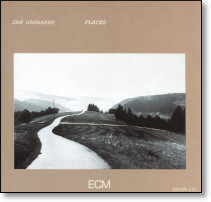 |
Expanded blog post, January archive (in progress).
Tweet: Music Week: 48 albums, 6 A-list,
Music: Current count 39462 [39414] rated (+48), 42 [36] unrated (+6: 14 new, 28 old).
Very little to add about this week's music. I was struggling to think of things to look up early in the week, so I wound up searching down the EOY aggregate file for highest-rated unheard records, sometimes singling out genres (country probably got the most attention). The highest-ranked records I still haven't heard yet:
- Ozzy Osbourne: Patient Number 9 (Epic) {22}
- Alexisonfire: Otherness (Dine Alone) {20}
- They Hate Change: Finally, New (Jagjaguwar) {20}
- Rolo Tomassi: Where Myth Becomes Memory (MNRK) {19}
- Sorry: Anywhere but Here (Domino) {19}
- Bonny Light Horseman: Rolling Golden Holy (37d03d) {18}
- Cass McCombs: |Heartmind (Anti-) {18}
- Osees: A Foul Form (Castle Face) {18}
The frequency of unheard items picks up significantly after 300: The Callous Daoboys (303); Knucks (309); Obongjayar (315); Rammstein (317); Dawn Richard & Spencer Zahn (318); Undeath (320); Afghan Whigs (324); The Big Moon (327); Naima Bock (328); Demi Lovato (332); Paolo Nutini (335); Static Dress (340); Big Joanie (344); Porcupine Tree (357); Warmduscher (364); Willow (365); Utada Hikaru (380); Horse Lords (381); The Orielles (389); Slipknot (396); Tedeschi Trucks Band (398); Wild Pink (400); Anxious (403); Jessie Buckley & Bernard Butler (404); Goat (409); Ho99o9 (410); King Hannah (412); King Stingray (413); Natalia Lafourcade (414); Kali Malone (415); Rob Mazurek (417); Meshuggah (419); Muse (422); Caitlin Rose (426); Bruce Springsteen (430); And You Will Know Us by the Trail of Dead (434); Blackpink (436); Built to Spill (439); Coheed and Cambria (441); Grace Cummings (442); Brian Ennels & Infinity Knives (447); Aoife Nessa Frances (448); Marina Herlop (450); Ithaca (453); The Lounge Society (458); Angeline Morrison (460); Pillow Queens (462); Pixies (463); The Soft Pink Truth (467); Witch Fever (471); Wizkid (472); Backxwash (476); The Black Angels (481); Black Star (482); Broken Bells (484); Alex Cameron (485); Christine and the Queens (489); Jake Xerxes Fussell (492); Future (493); Robyn Hitchcock (496).
I'll probably knock a few more of those off next week (so far: They Hate Change, Knucks). I expect to freeze the 2022 file after next week -- I may as well plan now on closing the week/month on January 31 instead of 30. After that, I'll cut back on the 2022 tracking files, although I'll continue to add late entries to the year 2022 lists, including the jazz and non-jazz best-of lists. Looking forward, I haven't started 2023 tracking and metacritic files. Hoping to focus more on other projects going forward, but I'm reluctant to make promises or resolutions.
I posted a pretty substantial Speaking of Which yesterday. The deeper I get into the Ryan Cooper book, the more impressed I am. Before getting into it, I read most of Denise Low's slim Jigsaw Puzzling: Essays in a Time of Pestilence. We've been doing jigsaw puzzles much earlier than the pandemic. Laura usually wanted to do a puzzle when she had a few days off. I had a pair of Springbok puzzle caddies, so was well-prepared to indulge her. One special memory was from 1991: we were working on one while watching coverage of the Soviet coup against Gorbachev, while a hurricane was blowing outside (we were in Boston). Since she retired, we've had a puzzle going continuously. Low, by the way, was once poet laureate of Kansas, although she's since moved to northern California.
New records reviewed this week:
- Courtney Marie Andrews: Loose Future (2022, Fat Possum): [sp]: B+(**)
- Kelsea Ballerini: Subject to Change (2022, Black River): [sp]: B+(*)
- Lakecia Benjamin: Phoenix (2022 [2023], Whirlwind): [cd]: A- [01-27]
- The Cactus Blossoms: One Day (2022, Walkie Talkie): [sp]: B
- Bill Callahan: YTILAER (2022, Drag City): [sp]: B+(*)
- Loyle Carner: Hugo (2022, EMI): [sp]: B+(**)
- Paul Cauthen: Country Coming Down (2022, Thirty Tigers/Velvet Rose): [sp]: B+(*)
- Chat Pile: God's Country (2022, The Flenser): [sp]: B+(*)
- Brent Cobb: And Now, Let's Turn to Page . . . (2022, Ol' Buddy): [sp]: B+(**)
- Luke Combs: Growin' Up (2022, Columbia Nashville): [sp]: B+(*)
- Rosalie Cunningham: Two Piece Puzzle (2022, Machine Elf): [sp]: B
- Lucrecia Dalt: ¡Ay! (2022, RVNG Intl): [sp]: A-
- Sarah Davachi: Two Sisters (2022, Late Music): [sp]: B+(*)
- Richard Dawson: The Ruby Cord (2022, Domino): [sp]: B-
- Drake: Honestly, Nevermind (2022, OVO Sound/Republic): [sp]: B+(*)
- Drake & 21 Savage: Her Loss (2022, OVO Sound/Republic): [sp]: B
- Brent Faiyaz: Wasteland (2022, Lost Kids): [sp]: B+(*)
- First Aid Kit: Palomino (2022, Columbia): [sp]: B+(*)
- Gabriels: Angels & Queens Part 1 (2022, Atlas Artists/Parlophone): [sp]: B+(**)
- Ghost: Impera (2022, Loma Vista): [sp]: B-
- Gilla Band: Most Normal (2022, Rough Trade): [sp]: B
- Keiji Haino: My Lord Music, I Most Humbly Beg Your Indulgence in the Hope That You Will Do Me the Honour of Permitting This Seed Called Keiji Haino to Be Planted Within You (2019 [2022], Purple Tap/Black Editions): [sp]: B+(*)
- Fred Hersch & Esperanza Spalding: Alive at the Village Vanguard (2022 [2023], Palmetto): [cd]: B+(***)
- Hot Chip: Freakout/Release (2022, Domino): [sp]: B+(*)
- Jeremy Ivey: Invisible Pictures (2022, Anti-): [sp]: B
- Khruangbin & Leon Bridges: Texas Sun (2020, Dead Oceans, EP): [sp]: B+(**)
- Khruangbin & Leon Bridges: Texas Moon (2022, Dead Oceans, EP): [sp]: B+(*)
- Lambchop: The Bible (2022, Merge/City Slang): [sp]: B
- Live Forever: A Tribute to Billy Joe Shaver (2022, New West): [sp]: A-
- The Mars Volta: The Mars Volta (2022, Clouds Hill): [sp]: B
- Carson McHone: Still Life (2022, Merge): [sp]: B+(*)
- Tyler Mitchell Octet: Sun Ra's Journey (2021 [2023], Cellar): [cd]: B+(***)
- Nas: King's Disease III (2022, Mass Appeal): [sp]: B+(***)
- Kim Petras: Slut Pop (2022, Republic, EP): [sp] A-
- Aaron Raitiere: Single Wide Dreamer (2022, Dinner Time): [sp]: B+(***)
- Jim Snidero: Far Far Away (2022 [2023], Savant): [sp]: B+(***) [02-03]
- Stormzy: This Is What I Mean (2022, Def Jam): [sp]: B
- Vieux Farka Touré & Khruangbin: Ali (2022, Dead Oceans): [sp]: B+(***)
- Phil Venable: Bassworks, Vol. 1 (2022, Soul City Sounds): [sp]: B+(*)
- The Wonder Years: The Hum Goes On Forever (2022, Hopeless): [sp]: B
Recent reissues, compilations, and vault discoveries:
- Miles Davis: Miles Davis With Tadd Dameron Revisited: Live 1949 at the Royal Roost NYC & in Paris at Festival Internationale De Jazz (1949 [2022], Ezz-Thetics): [bc]: B+(***)
- Miles Davis Quintet: 2nd Session 1956 Revisited (1956 [2022], Ezz-Thetics): [bc]: A-
Old music:
- Dave Bartholomew: The Big Beat of Dave Bartholomew: 20 of His Milestone Productions 1949-1960 (1946-60 [2002], Capitol): [sp]: B+(**)<./li>
- Doc Cheatham: Hey Doc! [The Definitive Black & Blue Sessions] (1975 [1997], Black and Blue): [sp]: B+(**)
- Jan Garbarek Quartet: Afric Pepperbird (1970 [1971], ECM): [sp]: B+(***)
- Jan Garbarek/Bobo Stenson/Terje Rypdal/Arild Andersen/Jon Christensen: Sart (1971, ECM): [sp]: B+(***)
- Jan Garbarek/Arild Andersen/Edward Vesala: Triptykon (1972 [1973], ECM): [sp]: B+(***)
- Jan Garbarek: Places (1977 [1978], ECM): [sp]: A-
Unpacking: Found in the mail last week:
- Don Aliquo: Growth (Ear Up) [02-17]
- Skip Grasso: Becoming (Barking Coda Music) [02-01]
- Jo Lawry: Acrobats (Whirlwind) [02-10]
- Dave Liebman: Live at Smalls (Cellar Music) [02-03]
- Doug MacDonald: Big Band Extravaganza (DMAC Music) [01-30]
- Markus Rutz: Storybook (Jmarq) [02-17]
- The Dave Stryker Trio: Prime (Strikezone) [02-03]
- Eldad Tarmu: Tarmu Jazz Quartet (Queen of Bohemia) [03-01]
- Rachel Therrien Latin Jazz Project: Mi Hogar (Outside In Music) [02-13]
- Greg Ward's Rogue Parade: Dion's Quest (Sugah Hoof) [02-10]
Sunday, January 22, 2023
Speaking of Which
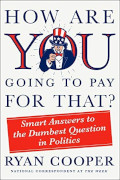 |
Plenty below. No need to pad it out with an introduction. I do want to note that so far I'm very impressed with Ryan Cooper's book, How Are You Going to Pay for That? Smart Answers to the Dumbest Questions in Politics.
House Republicans: Expect this to be the main story for the next year or two, as Republicans use their five-seat margin in the House to repeatedly remind us why they should never again be trusted with any power whatsoever in Washington. This week's stories:
Robert Kuttner: [01-17] Turning the Debt Ceiling Crisis Against McCarthy's Republicans: "Biden needs to play serious hardball, or he will get rolled." I could cite a dozen pieces on this issue, but it really comes down to a political test of will: a question of whether the Republican faction which McCarthy surrendered to can intimidate Biden and the Democrats into agreeing to the first tranche of insatiable demands. Control of the House gives Republicans a lot of leverage if they really want to cut the budget going forward, but that's not what they're demanding here: they want to undo already passed budgets, and they want to force Biden to do their dirty work for them. Do they have the power to do this? Not really, given that there are workaround solutions (e.g., the platinum coin, "a silly solution to a silly problem"). More importantly, will this brinkmanship help or hurt them politically? Past experience says it will hurt them. So why are they doing it? Mostly because they don't care. They believe they'll never be held responsible for the mischief they wreak.
Eric Alterman: [01-20] Deal-Making Republican 'Pragmatists'? Like, Who? The eternal search for the "adult" Republicans who are willing to break from the crazies when nothing sort of disaster looms. (One of the hopeful scenarios in Kuttner, above.)
David Dayen: [01-20] McCarthy's 21 Republican Defectors Didn't Get Much: "That's because the party already agreed with them."
Pablo Manriquez: [01-10] Here's the First Salvo in House Republicans' War on Transgender People: "They're reversing a rule Democrats passed in 2021 calling for gender-neutral pronouns."
Timothy Noah: [01-20] Go Ahead, Republicans, Pass a National Sales Tax. How many people really want to pay a 30% sales tax just so rich people can escape being taxed on income, dividends, capital gains, and estates? True that many people are poor judges of self-interest, but this one will be hard to swallow.
Areeba Shan: [01-18] GOP rages at McCarthy over committee as MAGA extremists score key assignments.
Peter M Shane: [01-20] Jim Jordan's Reckless New Committee: He's actually calling it the Select Subcommittee on the Weaponization of the Federal Government. It is, of course, the weaponization of congressional investigative authority for purely political ends. "It will start with overheated demands for information. . . . The Biden administration will comply with some requests while resisting others. Republicans will denounce recalcitrance as a coverup. Fox News, for its part, will condemn any lack of transparency as Democratic hypocrisy." Yes, you can write it all up now, not least because we've seen it all before (remember Benghazi!?).
Alex Shephard: [01-20] Actually, George Santos Has Been Pretty Good for the Republican Party: "It may not last forever, but the scandal-plagued congressman is helpfully distracting attention from the House's bona fide extremists and their weird ideas."
Abby Zimet: [01-21] Mogadishu Redux: Bring in the Malignant Clowns.
And beyond the House, Republicans don't get any brighter (or saner, let alone more civil):
Igor Derlysh: [01-17] NM GOP election loser who cried fraud charged in shootings targeting Dems. "Solomon Peña, who lost his race by 48 points, was arrested by a SWAT team on Monday." For more on this guy, see Hunter Walker: [01-19] Conspiracy Spiral: Alleged Shooting Mastermind Emerges as Central Figure in New 'False Flag' Theories.
Amanda Marcotte: [01-19] GOP whiners, stop pretending you cook! That's the link title, with Ted Cruz in front of a gas flame. Actual title: "Gas stoves!" freak-out is the least convincing fake Republican outrage ever.
Kelly McClure: [01-21] Kyle Rittenhouse blames "woke mob" for cancellation of event at Vegas hotel: I know, he's not in Congress yet, but wait till he turns 25 (see his Wikipedia page, especially the section "Commercialization and use of his image."
Li Zhou: [01-19] Introducing the new, even Trumpier class of Senate Republicans: Markwayne Mullin (OK), Ted Budd (NC), Katie Britt (AL), J.D. Vance (OH), Eric Schmidt (MO).
William Astore: [01-15] Imperial Dominance Disguised as Democratic Deterrence: Reading the Pentagon's latest NDS (National Defense Strategy) paper, which identifies five threats, prioritized: 1. China; 2. Russia; 3. the War on Terror; 4. North Korea and Iran; 5. climate change -- and proposes that the only way to deal with these problems is to spend more money on arms and bases straddling the world. Astore goes on to list seven things "you'll never see mentioned in this NDS":
- Any suggestion that the Pentagon budget might be reduced. Ever.
- Any suggestion that the U.S. military's mission or "footprint" should be downsized in any way at all.
- Any acknowledgement that the U.S. and its allies spend far more on their militaries than "pacing challengers" like China or "acute threats" like Russia.
- Any acknowledgment that the Pentagon's budget is based not on deterrence but on dominance.
- Any acknowledgement that the U.S. military has been far less than dominant despite endless decades of massive military spending that produced lost or stalemated wars from Korea and Vietnam to Afghanistan and Iraq.
- Any suggestion that skilled diplomacy and common security could lead to greater cooperation or decreased tensions.
- Any serious talk of peace.
For more, see:
William Hartung: [01-17] What Price "Defense"? "America's costly, dysfunctional approach to security is making us ever less safe."
Nan Levinson: [01-19] Last Night I Had the Strangest Dream: "Is there a world beyond war?"
Dean Baker: [01-21] Biden has earned a solid 'A' halfway through his term. A bit of boosterism from an economist who's normally quite critical, but compared to whom? Baker argues that Biden managed to wring more positive legislation out of Congress than any president since LBJ, with a razor-thin margin in Congress (unlike Clinton or Obama in their first two years, which brought us NAFTA and ACA/Dodd-Frank). He doesn't dwell much on the executive orders, which reversed much (though by no means all) of the damage Trump wrought. He also doesn't have anything to say about Biden's foreign policy, which allows many newspapers to pair his piece with Meaghan Mobbs: Joe Biden deserves a 'D' for his administration's foreign policy. I don't know her political affiliation, but she's a West Point grad, former Army captain, and well established in the pro-military think tank racket. She blames Biden for getting out of Afghanistan (that alone should bump the grade to 'B'), and more generally for not being militant enough everywhere: "President Joe Biden and his administration speak harshly against our adversaries while failing to follow through with the necessary hard actions." I'm critical too, but for opposite reasons. Biden has pretty much everywhere focused on rebuilding military alliances -- which he saw Trump as undermining -- while failing to mitigate tensions and pursue diplomatic breakthroughs, including some that were obviously there for the taking. I'm uncertain how much to grade him down for those shortcomings -- and sure, there have been some of those on the domestic side as well, but the foreign policy ones are more glaring because he supposedly has more autonomy there -- but on a curve that goes back at least to Reagan, he looks pretty good.
Baker also wrote:
[01-21] Debt, Deficits, Secular Stagnation and the Which Way Is Up Problem in Economics. The "which way is up" problem is whether the economy is constrained by supply or demand. Evidently there is a difference of opinion on this (not "facts," as they can be carefully selected to reflect opinion). Baker concludes: "As the saying goes, economists are not very good at economics." Commenter Jake adds: "These two positions, far from being contradictory, both express a Calvinist world view, when 'economics' is required above all to be virtuous. If government policy doesn't hurt people, it must be wrong and must be bad."
[01-17] Paul Krugman, China's Demographic Crisis, and the Which Way Is Up Problem in Economics. Krugman's piece is here. There have been a bunch of pieces recently crowing that China is facing a demographic crisis, but a number of other countries have seen negative population growth without dire effects. (Russia in the 1990s is an outlier, but that's because the crashing economy and political dysfunction caused the population drop.)
[01-15] Government-Granted Patent Monopolies Lead to Corruption: Aduhelm Edition.
[01-07] Contrary to What the NYT Tells You, the Problem in an Aging Society Is Distribution.
Irin Carmon: [01-20] What the Supreme Court Left Out of Its Dobbs-Leak Report: After Roberts' huffing and puffing when the leak occurred, the report didn't find the culprit, suggesting that the real answer was one that Roberts didn't want to hear.
Chas Danner: [01-22] 10 Dead in Lunar New Year Shooting in California: What We Know. Third mass shooting in California so far this year, 33rd nationwide (that's about 1.5 per day).
Lawrence B Glickman: [01-21] The Real Origins of the "Democrat Party" Troll.
Jonathan Guyer: [01-20] Israel's new right-wing government is even more extreme than protests would have you think: "It's also not a huge departure from previous ones."
Ramzy Baroud: [01-21] Ben-Gvir Escalates Religious War Against Palestinians: "The historic truth is that Ben-Gvir's behavior is only a natural outcome of Zionist thinking, formulated over a century ago."
Julia Conley: [01-19] Harvard Reverses on Kenneth Roth.
Isabel Kershner: [01-22] Netanyahu Fires a Top Minister to Comply With a Supreme Court Ruling: Netanyahu had appointed Shas party leader Aryeh Deri as Minister of the Interior and of Health. The Supreme Court ruled him ineligible, having been convicted of bribery and tax fraud. One of the aims of the new ultra right-wing government is to limit the ability of the Supreme Court to overrule their policies. (See: Netanyahu's Plan to Destroy Israel's Supreme Court and the Rule of Law.) Netanyahu himself is under indictment for corruption.
Richard Silverstein: [01-11] Former IDF General: Arrest Gantz and Lapid for Treason.
Richard Silverstein: [01-21] IDF Snipers Murder Palestinian Boys: "In this month alone, Israel has murdered 20 Palestinians via nightly invasions of villages in the West Bank. In all of 2022, it murdered nearly 200 Palestinians. Not since 2004, has Israeli killed as many Palestinians." I've seen that claim several times, but it's only true if you exclude Gaza, where it's been topped several times: e.g., 2125 (or more) killed in 2014; 1166-1417 in 2008-09. You may recall that 2004 was the height of the second Intifada.
Margaret Hartmann: [01-20] Did a $1 Million Fine Teach Trump a Lesson About 'Frivolous' Lawsuits? Remember the one he filed in March "accusing Hillary Clinton, former FBI director James Comey, the Democratic National Committee, and many others of orchestrating 'a malicious conspiracy'"? Well, it's not only been thrown out. Trump and his attorneys have been sanctioned for filing it. And one day later, Trump prudently dropped another "similarly dubious lawsuit": see Samaa Khullar: [01-20] Trump rushes to withdraw frivolous lawsuit against NY AG after a stark warning from judge. Speaking of frivolous lawsuits by thin-skinned billionaires meant to stifle criticism, see Jordan Uhl: [01-20] A Texas Billionaire Is Suing to Stop Free Speech Against Billionaires.
More Trump trivia:
Alex Bronzini-Vender: [01-20] What Italy's Failures to Stop Berlusconi Teach Us About Preventing a Trump Comeback.
Sarah K Burris: [01-17] Trump calls evangelical leaders who haven't backed presidential bid disloyal.
Sarah K Burris: [01-17] Legal expert stunned after Trump "steps in it over and over" in newly-released deposition: This is in the E Jean Carroll defamation suit. He defamed her again. Couldn't help himself.
Rae Hodge: [01-17] Court proceedings reveal MBS paid Trump "millions in the past two years".
Heather Digby Parton: [01-20] Donald Trump is smothering the religious right.
Brad Reed: [01-17] Trump lashes out at "thug" special prosecutor on Truth Social: "This is a Gestapo type operation".
Jeet Heer: [01-17] Why Biden and Trump Are Both Trapped in Secret-Document Scandals: "The real problem is the national security state's love of classification." Also:
Jason Linkins: [01-21] Biden's Document Screwup Is an Ethical Opportunity: "Rather than follow the Beltway's cynical damage-control playbook, the president should put on a master class in how to take responsibility for a mistake." Not that doing so will get noticed with the Republicans and their media idiots demanding blood.
Heather Souvaine Horn: [01-19] Davos Still Sucks: "How can the World Economic Forum earnestly pretend to address global crises while being funded by the corporations that fuel these crises?" I skipped over a bunch of articles on Davos, as none seemed to convey the true story. This one merely sums it up briefly. Also includes a picture which shows their logo, which reads "Committed to improving the state of the world." One article I skipped was about a high-five between attendees (of course they are) Kirsten Sinema and Joe Manchin. They proved their commitment by repeatedly torpedoing Democratic bills over the last two years. But most likely what they're actually doing in Davos is prospecting for their post-Senate payouts.
Jill Lepore: [01-09] What the January 6th Report Is Missing: "The investigative committee singles out Trump for his role in the Capitol attack. As prosecution, the report is thorough. But as historical explanation it's a mess." Point taken, but the report's antecedents are hardly better. Part of the blame may be that to get the cooperation of Cheney and Kinzinger the Committee spared any Republican who wasn't directly tied to Trump. Beyond that, one thing the Committee didn't want to do was to offer any sort of mitigating circumstances, which is what a history of Republican voting schemes would have provided. Sure, Trump was not the only one, but he went farther than anyone else ever, so it's not such a surprise that he got singled out.
Blaise Malley: [01-20] Diplomacy Watch: White House signals that retaking Crimea is in the cards: "Officials say it has been US policy all along." One thing that all sides have managed to do is to hold fast to their maximalist demands without suggesting that they might be willing to settle for anything less. That makes some sense as a public stand, but it makes negotiation, and therefore any chance of ending the war, hopeless. I suppose it's possible that somewhere there's a secret channel where some kind of compromise can be negotiated, but the harder the public proclamations, the less credible that is. Key quote here is: "the Biden administration does not think that Ukraine can take Crimea militarily . . . but, officials said, their assessment now is that Russia needs to believe that Crimea is at risk." The fuller quote suggests that the US is angling toward eventual negotiations, which is to say they recognize that no military solution is possible, but in trying to psych out Russia, aren't they also building up false hopes for Zelensky? The recent rush to give Ukraine tanks seems to promise a spring offensive to drive Russia back toward the pre-2014 borders. But Russia's big tank advantage back in March soon turned into a liability. Is there any reason to think Ukraine can better defend their tanks?
More on Ukraine:
Chas Danner: [01-20] Ukraine's Latest Arms Haul: Thanks but No Tanks. Germany is balking at sending tanks, at least unless the US agrees to send some, which hasn't happened yet.
Fred Kaplan: [01-21] The Clash Over Whether to Send German Tanks to Ukraine Is a Pretty Big Deal. One point here is that US reluctance to send its M1 Abrams tanks partly technical, as the M1 is a "maintenance nightmare; it runs on jet fuel and sucks up three gallons per mile (not the other way around); a separate, massive supply line would have to be set up, manned, and defended, just for these tanks."
Anatol Lieven: [01-19] Six questions Western defense chief never seem to raise but should today. Lieven followed this up with: [01-20] Germans remain adamantly opposed to sending any Leopard tanks to Ukraine. [PS: Later: [01-22] Germany won't object if Poland sends tanks to Ukraine, foreign minister says.]
Suzanne Loftus: [01-21] No one will win a protracted war in Ukraine.
Trita Parsi: [01-20] No, Weakening Russia Is Not "Costing Peanuts" for the U.S. "Some analysts argue that America is getting a great deal for its money. But there are a lot of strategic costs that don't show up on the balance sheet." The Pentagon is notoriously incompetent at accounting for the money it spends directly, and everyone involved is extremely myopic (often plain blind) to the indirect costs occurred by others. (Economists have since estimated that the total costs of the Iraq War exceed $3 trillion. You may recall that when it was launched, some sales pitches estimated that it would pay for itself.) But I would start by questioning the premise: that degrading Russia's military forces, and embarrassing its political leaders, thus destabilizing the state, is a positive outcome. I'm not talking about who deserves what: that Putin should fail in his invasion is proper and just, but once the war ends, so should the further hostilities with Russia. (The failure of the elder Bush to accept the end of the Gulf War, leaving Saddam Hussein in power, almost guaranteed that the younger Bush would return to "finish the job," and make the situation even worse.) Anyone who doubts that this war is a massive tragedy for all sides has no business anywhere near power.
Jordan Michael Smith: [10-17] The Neocons Are Losing. Why Aren't We Happy? This chronicles a factional shift in the Republican Party that unlike the neocons who dominated the GW Bush administration, are less inclined to threaten the world with devastation, and who tend to see American interests as focused within the nation's borders. Still, there is considerable variation among the people profiled here -- few are antiwar where the enemy threatens American business class interests, and some (not least Donald Trump) are so full of bluster they could stumble into a war backwards. To group them together as Jacksonian seems wrong -- although I suppose it allows for the bluster and bigotry, but it strays a bit from the Quincy Institute watchwords of realism and restraint.
Ian Millhiser: [01-22] The coming legal showdown over abortion pills.
Madeleine Ngo: [01-19] The US just hit the debt limit. What happens now?
Kelsey Piper: [01-18] Operation Warp Speed was a huge success. So why is the US turning away from it? Rather than simply proclaiming Operation Warp Speed as "one of the biggest accomplishments of the Trump administration," perhaps a little critical distance is in order. It was Congress that put up the money, and the federal bureaucracy that implemented the program -- both subject to the usual corruption and political wiles, which were hardly unmitigated blessings. At best, Trump -- and, let's face it, he was rarely at best -- was a cheerleader. In the end, he was ambivalent about taking credit, because the anti-vax culture war cut deep into his base, leaving its leaders to catch up (something Ron DeSantis has done far more energetically than Trump). The problem isn't that "Democrats are loath to admit Trump did anything right" -- they just don't see any mileage when Trump himself is reluctant to take credit.
There are legitimate questions one could ask: Did this need to cost so much (e.g., elevating drug company moguls to billionaires). Why wasn't it more effective? Why wasn't it better distributed beyond the US? How can you speed up the process even more? Unfortunately, the Republican political thrust isn't how to do a better job, but how to avoid even being this effective ever again?
Luke Savage: [01-21] If America Had Fair Laws, 60 Million Workers Would Join a Union Tomorrow.
Dylan Scott: [01-20] When hospitals merge, patients suffer. Study is in the UK, but the profit motive amplifies the effect in the US.
More on health care:
Jake Johnson: [01-20] Physicians Tell Biden HHS to End Medicare Privatization Pilot.
Kenny Stancil: [01-18] Record Number in US Postponed Healthcare in 2022: More evidence, as Bernie Sanders says, "We need Medicare for All."
Jeffrey St Clair: [01-20] Roaming Charges: The Specter of Equity and Other Evils.
George Tyler: [01-20] Ron DeSantis symbolizes that it's Richard Nixon's Republican Party now. Although, in a sign of the times, he admits that "in contrast to Nixon, DeSantis' cruel streak is already evident to voters." It took a while to realize that Nixon's malice wasn't just opportunism -- and many people continue to be shocked at Republican cruelty, even as evidenced by someone as sociopathic as Trump. I'm old enough to still regard Nixon as the most loathsome creature in American political history. In his calculated efforts to out-Trump Trump, DeSantis is aiming for Nixonian notoriety.
More DeSantis:
Jonathan Chait: [01-20] Florida Calls African History Course 'Inexplicably Contrary' to State Law: "You'd think the state would be able to explicate its reasons."
Alex Henderson: [01-19] GOP critics trash Ron DeSantis' "anti-woke" crusade against the NHL.
Ed Kilgore: [01-21] Could Trump Run to DeSantis's Left in 2024? Probably not. He did claim more moderate positions than most 2016 hopefuls (especially on things like social security), but he did absolutely nothing to govern that way. Instead, via Pence, he hired a lot of right-wing freaks, and let them run amok. But what really makes it unlikely is that he knows that attacks from the right are more vicious, and more likely to draw blood, and that's what Republican primary voters want to see in a leader. It also fits his instinct to be an asshole, and Trump is more than anything else a creature of instinct. On the other hand, it's hard to see much passing room to the right of DeSantis.
Ian Millhiser: [01-17] Ron DeSantis's war on "wokeness" is a war against the First Amendment: "The Florida governor (and likely presidential candidate) appears to believe that government exists to advance his ideas -- and to suppress dissent."
Dan Zak: [01-11] The boring journey of Matt Yglesias: "The Washington ur-blogger's slightly contrarian, mildly annoying, somewhat influential, very lucrative path toward the political center." During his time at Vox, Yglesias was the first person I checked every week, and most often provided the structure for my own blog posts. I had followed him as he maneuvered the blogosphere, but his paywall at Substack was one step too many. Still, by then I was beginning to have doubts. He got entered in, and won, a poll for "neoliberal shill of the year," and took unseemly pride in the fact. He never was as bad as most of the people friends on the left castigate as neoliberals, but he did seem to get up on a few ideas I found obnoxious, like "congestion pricing." (Even if you wanted to, how would that work? And what does it say about our values?) Then he wrote a big book called One Billion Americans: The Case for Thinking Bigger, which looked and smelled like a bid for the Thomas Friedman market. Nowadays, the only time I read him is when one of his Bloomberg columns gets syndicated in my local paper. Few are memorable, but he has enough command of his subject he's not useless. And while he seems politically more centrist than ever, the bigger problem may be that he's just not very deep. Consider this:
Perhaps it's instructive to think about two topics that bookend his public life. At age 21, Yglesias was laying out the logician's case for the invasion of Iraq, because how could the most powerful, informed men on Earth be so stupid? In May of this year, Yglesias declared that Bankman-Fried "is for real," because why else would wealthy people risk their money? . . .
This is Matt Yglesias coddling the powerful, his critics would say, and exposing a gullible dilettantism. And yet plenty of people view him as an early, sensible and stalwart voice for incremental progress on key issues of the 21st century, such as marijuana reform and same-sex marriage.
I wouldn't call those "key issues of the 21st century" -- they fall far short of war, inequality, labor rights, a very distorted system of justice, climate, sustainability, etc. Even his strong pro-immigration stance is based on his romanticism around growth.
Memorable tweets:
Connie Schultz:
Word of warning for parents supporting these book bans: As a child, I found a way to read every book someone told me I could not read. You see how I turned out. Think this through.
Context is notice that "Virginia's Madison County School Board approved banning 21 books from its high school library." The list includes four books by Toni Morrison, three by Stephen King (including 11/22/63), and The Handmaid's Tale.
I could offer myself as another example: I instinctively hated (and in some cases refused to read) required literature, and sought out pretty much everything that was banned or condemned. And yes, see how I turned out. My brother followed suit, and got kicked out of school for turning in a poetry notebook which opened with "Howl." Both of us were sent to see a shrink (who, by the way, thought the whole affair was hilarious).
Wednesday, January 18, 2023
Daily Log
Doing some computer shopping (for a friend). Let's start with a Dell XPS 8950 desktop tower, for $1075.00:
- 12th gen Intel i7-12700 8-core processor 2.10GHz
- 16GB DDR5 RAM (4 slots, max 64GB)
- 512GB solid state drive
- Intel UHD 770 graphics
- Killer WiFi-AX
- Bluetooth 5.2
- 2 x USB Type-C 3.2
- 5 x USB 3.2
- 2 x USB 2.0
- 1 x RJ-45 Ethernet Port
- 1 x DisplayPort
- 1 media card reader
- 1 combination audio jack
- Windows 11 Pro
- Power supply: 460W
- wired keyboard and mouse
- monitor not included
- no spec on internal drive bays, motherboard spec, etc. box looks like mini-tower, or maybe smaller
Quickly picking out a comparable DIY machine (roughly $650 + box, fans, keyboard, and mouse):
- Intel Core i7-12700K 12th gen 12-core cpu ($323.88), LGA 1700 Socket, with UHD Graphics 770 -- couldn't find 8-core; Intel Core i7-12700K specmark 34735, rank 107; i7-12700E 28292
- ASRock Z690 Phantom LGA 1700 DDR5 ATX Motherboard ($159.99)
- DDR5 memory 16GB: Crucial ($69.98); Corsair 32GB ($119.99)
- M.2 solid state drive: Team Group 512GB ($31.99); WD 1TB ($69.99); Intel 1TB ($67.99)
- Power Supply: Thermaltake t00W ($34.99)
Tuesday, January 17, 2023
Daily Log
Notes on dinnerware:
Wichita Stores:
- At Home: Towne East
- Bed Bath & Beyond: 2441 N Maize
- Big Lots
- Dillards: Towne East
- HomeGoods: 2764 N Maize
- JC Penney: Towne West
- Kirkland's Home: 2441 N Maize (New Market Square)
- Kohls: 6900 W Kellogg
- Pottery Barn: 2040 N Rock (Bradley Fair)
- Target: 7575 Maple; 2727 N Maize
- Walmart
- Wichita Home Outlet
Materials: check for microwave/dishwasher.
- Ceramic
- Earthenware: casual, rustic look; lightweight, delicate, easily chipped.
- Glass: durable, nonporous; vitrified is almost indestructible.
- Melamine: lightweight, break-resistant plastic.
- Porcelain: glazed, nonporous.
- Stoneware: more durable than Earthenare; bulky.
Brands:
- Amazon: Gibson Elite Rhinebeck ($84)
- Corelle: Vitrelle 3-layer glass plates are lightweight; "best everyday"
- Crate & Barrell: Mercer Blue Rim
- Fable: ($270)
- Material: Korean ($140)
- Mikasa:
- Mosser Glass: retro
- Our Place: ($290)
- Pfaltzgraff: ($90)
- Wedgwood: white bone china ($346); Intaglio 16-piece (4: $390.13)
- Williams Sonoma: Luna stoneware ($70)
Monday, January 16, 2023
Music Week
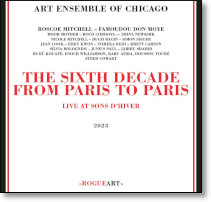 |
 |
 |
 |
 |
 |
 |
 |
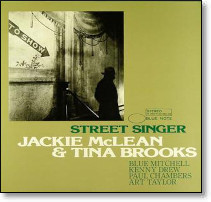 |
 |
Expanded blog post, January archive (in progress).
Tweet: Music Week: 61 albums, 10 A-list,
Music: Current count 39414 [39353] rated (+61), 36 [42] unrated (-6: 8 new, 28 old).
Still decompressing from the pressures of releasing the Francis Davis Jazz Poll as well as numerous other stresses I've probably complained about too much already, so I don't have much to say this week. One way of destressing has been to do rote work: the biggest chunk of which was adding all of the jazz critics ballots into my EOY aggregate file (including ones we didn't receive from other sources like Free Jazz Collective). One result of this is that jazz albums have risen to an unnatural prominence in my overall standings (top 30, numbered by overall rank, points in braces, my grade in brackets):
- Mary Halvorson: Amaryllis (Nonesuch) {146} [***]
- Cecile McLorin Salvant: Ghost Song (Nonesuch) {97} [**]
- Immanuel Wilkins: The 7th Hand (Blue Note) {90} [A-]
- Makaya McCraven: In These Times (International Anthem) {81} [**]
- Tyshawn Sorey Trio: Mesmerism (Yeros7 Music) {73} [***]
- Myra Melford's Fire and Water Quintet: For the Love of Fire and Water (RogueArt) {64} [***]
- Tyshawn Sorey + 1 [With Greg Osby]: The Off-Off Broadway Guide to Synergism (Pi) {64} [A]
- Ches Smith: Interpret It Well (Pyroclastic) {54} [**]
- JD Allen: Americana Vol. 2 (Savant) [**]
- Terri Lyne Carrington: New Standards Vol. 1 (Candid) {52} [**]
- Wadada Leo Smith: The Emerald Duets (TUM) {52} [A-]
- Mary Halvorson: Belladonna (Nonesuch) {50} [*]
- Andrew Cyrille/William Parker/Enrico Rava: 2 Blues for Cecil (TUM) {46} [A-]
- Matthew Shipp Trio: World Construct (ESP-Disk) {45} [***]
- Charles Lloyd: Trios: Chapel (Blue Note) {44} [B]
- Sun Ra Arkestra Directed by Marshall Allen: Living Sky (Omni Sound) {43} [A-]
- Moor Mother: Jazz Codes (Anti-) {42} [A-]
- Nduduzo Makhathini: In the Spirit of Ntu (Blue Note) {41} [*]
- Melissa Aldana: 12 Stars (Blue Note) {39} [***]
- David Murray/Brad Jones/Hamid Drake Brave New World Trio: Seriana Promethea (Intakt) {38} [A-]
- Patricia Brennan: More Touch (Pyroclastic) {35} [***]
- The Comet Is Coming: Hyper-Dimensional Expansion Beam (Impulse!) {35} [**]
- Jeff Parker: Mondays at the Enfield Tennis Academy (Eremite) {35} [A-]
- Joshua Redman/Brad Mehldau/Christian McBride/Brian Blade: Long Gone (Nonesuch) {35} [***]
- Marta Sanchez: SAAM (Spanish American Art Museum) (Whirlwind) {35} [A-]
- Binker & Moses: Feeding the Machine (Gearbox) {34} [**]
- Samara Joy: Linger Awhile (Verve) {34} [**]
- Miguel Zenón: Música De Las Americas (Miel Music) {34} [A-]
- David Virelles: Nuna (Pi) {33} [**]
- Tomas Fujiwara's Triple Double: March (Firehouse 12) {30} [A-]
These rankings will probably sink back if/when I add more non-jazz lists (if memory serves, the top jazz album usually winds up somewhere 20-35), but the value of spending much more time on this is receding. I've always maintained that the purpose of the list is to scout out records of possible interest to me, hence there have always been genres that I have sought out (I have 1161 jazz albums listed, of 4062 total) and others that I have avoided -- nonetheless, I counted 219 metal albums, but I've only heard 4; the country and hip-hop lists are actually shorter, but I've heard much more (64 of 138 country, 97 of 212 hip-hop).
Reviewing the ballots, I discovered three errors I had made in compiling, so I was glad to get them compiled. I've also heard from several critics who didn't get invited and (rightly) thought they should have: apologies to Karl Ackermann and Bill Milkowski. If/when we do this again -- and I'm pleased to report that Francis sounds more optimistic than I am -- we should make a serious effort to review and expand the voter rolls well in advance of the November crunch.
One thing I belatedly realized from this chart is that I never received physical CDs of Halvorson's Nonesuch albums nor of Sorey's Mesmerism. I reviewed them from streams as soon as they dropped, but was perplexed at not being able to find them when I racked up all of my 2022 A/A-/B+(***) jazz CDs. I rechecked several top jazz albums during the Poll, but only Wilkins got a grade bump. Although I've heard all 30 albums above, only 12 came as CDs.
One person I want to single out from the Jazz Poll's In Memoriam list is John Swenson. I remember him from when he was reviewing records for Rolling Stone in the mid-1970s. He went on to edit Stone's jazz and blues record guides, and moved on to New Orleans, where he wrote New Atlantis: Musicians Battle for the Survival of New Orleans (post-Katrina). I bumped into him once, and was surprised and flattered that he seemed to be as pleased to meet me as I was to find him. As I recall, we were both pub rock fans at the time, so our later independent paths into jazz may have common roots. He joins John Morthland and Ed Ward in my personal pantheon of recently departed colleagues.
More old music this week, mostly from the Penguin Guide 4-star unheard list. Most get a single play and snap judgment, so I wouldn't be surprised if my grades wind up being low (even for Brubeck's Jazz Impressions of Japan). New records come from various sources, including Jazz Poll ballots, last week's Christgau Consumer Guide, and Jason Gross's Ye Wei Blog list. Plus I finally dipped into my 2023 promo queue.
I finished Fred Kaplan's 1959: The Year Everything Changed. The chapter on Margaret Sanger and the birth control pill is worth the price of the book, but so are another half-dozen chapters, not least those on three revolutions in jazz that hit that year: Miles Davis's Kind of Blue (with due credit for George Russell), Dave Brubeck's Time Out, and Ornette Coleman's The Shape of Jazz to Come. (Charles Mingus and Cecil Taylor get mentioned in passing, but not the former's fabulous Mingus Ah Um.) I turned nine that year, and scarcely noticed anything highlighted (mostly political events, including the space race), but Kaplan shows how the 1960s were locked and loaded, ready to burst forth, as they did for me -- many established so quickly that they looked to me like the natural world yet were still so new and divergent they shocked my parents and their generation's cultural guardians. Some overlap with Louis Menand's The Free World, which is more careful in laying out early post-WWII changes than looking for a specific pivot point.
Last, I wrote yet another Speaking of Which last night, and made a brief pass at touching it up today. The biggest change was that I looked up links for most of the statements I made in the introduction. I probably should do that sort of thing more often, but it's hard to keep up that much focus on something that gets forgotten so quickly.
New records reviewed this week:
- Art Ensemble of Chicago: The Sixth Decade From Paris to Paris: Live at Sons D'Hiver (2020 [2023], RogueArt, 2CD): [cd]: A- [01-20]
- Asake: Mr. Money With the Vibe (2022, YBNL Nation/Empire): [sp]: B+(***)
- John Bailey: Time Bandits (2022 [2023], Freedom Road): [cd]: B+(**) [01-23]
- Lucian Ban: Ways of Disappearing (2021 [2022], Sunnyside): [sp]: B+(**)
- Barcelona Art Orchestra: Ragtime Stories (2021 [2022], UnderPool): [sp]: B+(***)
- Bliss Quintet: Dramaqueen (2022, Jazzland): [sp]: B+(*)
- Madison Cunningham: Revealer (2022, Verve Forecast): [sp]: B+(**)
- Czarface: Czarmageddon (2022, Silver Age): [sp]: B+(***)
- Falkner Evans: Through the Lines (2022 [2023], CAP): [cd]: B+(**)
- Mimi Fox Organ Trio: One for Wes (2022 [2023], Origin): [cd]: B+(*) [01-20]
- Fred Frith/Susana Santos Silva: Laying Demons to Rest (2021 [2023], RogueArt): [cd]: B+(***) [01-20]
- Hard Rubber Orchestra: Iguana (2022, Redshift): [sp]: B+(*)
- Sly Johnson: 55.4 (2022, BBE): [sp]: B+(**)
- Linqua Franqa: Bellringer (2022, Ernest Jennings): [sp]: B+(**)
- Lyrics Born: Vision Board (2022, Mobile Home): [sp]: A-
- Joanna Mattrey/Gabby Fluke-Mogul: Oracle (2022, Relative Pitch): [sp]: B+(**)
- Fergus McCreadie: Forest Floor (2022, Edition): [sp]: B+(**)
- Joe McPhee & Tomeka Reid: Let Our Rejoicing Rise (2021 [2022], Corbett vs. Dempsey): [sp]: B+(**)
- Montparnasse Musique: Archeology (2022, Real World): [sp]: A-
- Simon Moullier: Isla (2022 [2023], self-released): [cd]: B+(**) [02-17]
- Native Sound System: Nativeworld (2022, Native): [sp]: B+(*)
- Youssou N'Dour Et Le Super Etoile De Dakar: Special Fin D'Annee 2022 (2022, self-released, EP): [sp]: B+(**)
- Maggie Nicols: Are You Ready? (2021 [2022], Otoroku): [sp]: B+(*)
- Oort Smog: Smeared Pulse Transfers (2017 [2019], Sweatband, EP): [sp]: B+(*)
- Oort Smog: Every Motherfucker Is Your Brother (2022, AKP): [sp]: B+(**)
- PinkPantheress: Take Me Home (2022, Warner Music, EP): [sp]: B+(*)
- Pongo: Sakidila (2022, Virgin): [sp]: A-
- Simona Premazzi: Wave in Gravity: Solo Piano (2021 [2023], PRE): [cd]: B+(**) [02-17]
- Scrunchies: Feral Coast (2022, Dirt Nap): [bc]: B+(***)
- Elliott Sharp/Eric Mingus: Songs From a Rogue State (2022, Zoar): [sp]: B+(*)
- Kalia Vandever: Regrowth (2022, New Amsterdam): [sp]: B+(***)
- Skip Walker: Tina's Contemplation: A Reflection on the Genius of Tina Brooks (2022, Skip Walker Music): [sp]: B+(***)
- Yelawolf & Shooter Jennings: Sometimes Y (2022, Slumerican): [sp]: B
Recent reissues, compilations, and vault discoveries:
- Ashbury Stabbins Duo: Fire Without Bricks (1976 [2021], Corbett vs. Dempsey): [bc]: B+(*)
- Pedro Lima: Recordar É Viver: Antologia Vol. 1 (1981-87 [2022], Bongo Joe): [sp]: B+(***)
- Mainstream Funk: Funk, Soul, Spiritual Jazz 1971-75 (1971-75 [2022, WeWantSounds): [bc]: B+(**)
- Freddy Roland Y Su Orquesta De Moda: Freddy Roland Y Su Orquesta De Moda (1968 [2022], Vampisoul): [bc]: A-
Old music:
- Abash [Tommy Skotte/Anders Ekholm/Nils Danell]: Abash (1993, Dragon): [r]: B+(***)
- Albert Ayler: Nuits De La Fondation Maeght 1970 (1970 [2002], Water): [sp]: A-
- Jon Balke & Magnetic North Orchestra: Kyanos (2001 [2002], ECM): [sp]: B+(**)
- Tony Bevan/Paul Rogers/Steve Noble: Bigshots (1991 [1992], Incus): [bc]: B+(*)
- Tony Bevan/Alexander Frangenheim/Steve Noble: Twisters (1995 [1996], Scatter): [bc]: B+(*)
- Michiel Borstlap: The Sextet Live! (1995, Challenge, 2CD): [r]: B+(**)
- Anthony Braxton: In the Tradition (1974 [1989], SteepleChase): [sp]: B+(**)
- Anthony Braxton: In the Tradition: Volume 2 (1974 [1987], SteepleChase): [sp]: B+(**)
- Anthony Braxton: Five Compositions (Quartet) 1986 (1986, Black Saint): [sp]: B+(***)
- Anthony Braxton: Ninetet (Yoshi's) 1997 Vol. 1 (1997 [2002], Leo, 2CD): [r]: B+(***)
- Bob Brookmeyer New Art Orchestra: New Works/Celebration (1997 [1999], Challenge): [sp]: B+(**)
- Reuben Brown: Ice Scape (1994 [1997], SteepleChase): [sp]: B+(***)
- Reuben Brown: Blue and Brown (1994 [1998], SteepleChase): [sp]: B+(**)
- Dave Brubeck: Octet (1946-50 [1991], Fantasy/OJC): [r]: B+(**)
- The Dave Brubeck Quartet: Jazz at the College of the Pacific (1953 [1987], Fantasy/OJC): [r]: B+(***)
- The Dave Brubeck Quartet: Brubeck Time (1954 [1955], Columbia): [r]: B+(***)
- The Dave Brubeck Quartet: Jazz Impressions of the U.S.A. (1956-57 [1957], Columbia): [sp]: B+(***)
- The Dave Brubeck Quartet: Jazz Impressions of Eurasia (1958, Columbia): [sp]: B+(**)
- The Dave Brubeck Quartet: Jazz Impressions of Japan (1964, Columbia): [sp]: A-
- The Dave Brubeck Quartet: Jazz Impressions of New York (1964 [1965], Columbia): [sp]: B+(***)
- Gary Burton/Keith Jarrett: Gary Burton and Keith Jarrett (1969-70 [1971], Atlantic): [sp]: B
- Stoney Edwards: Mississippi You're on My Mind (1975, Capitol): [sp]: A-
- Jackie McLean & Tina Brooks: Street Singer (1960 [1980], Blue Note): [sp]: A-
- Lucinda Williams: Little Honey (2008, Lost Highway): [sp]: B+(***)
Grade (or other) changes:
- PinkPantheress: To Hell With It (2021, Parlophone, EP): [sp]: [was: B+(**)] A-
Unpacking: Found in the mail last week:
- George: Letters to George (Out of Your Head) [01-27]
Sunday, January 15, 2023
Speaking of Which
Still feeling indifferent about continuing this column, but hadn't gotten into anything else at the moment, so found some time. Then it got late, and I had to cut it short.
Lots missing below, including the child who shot his school teacher, and another story here in Wichita where a toddler shot a mother. A small but, but not much, on the Biden classified documents search, which still reads to me like a comedy of errors. There are clearly more differences between the Biden and Trump cases than the media likes to admit, but although I wouldn't mind Trump being sent to prison, it's hard to get excited about the legal jeopardy he seems to be in. Classified documents are basically bullshit. I wouldn't put people who disclosed them to the public (like Reality Winner and Edward Snowden) in jail, and frankly don't care much about people who sold them to Russia or Israel (many of whom eventually got repatriated anyway). I don't see how Trump can complain about the Mar-a-Lago raid, given how much the FBI found, but he's probably right that if they prosecute him, it's mostly political. (And, let's face it, the Feds have prosecuted lots of people for politics, most much more worthy of sympathy than Trump is.)
The Georgia phone call is another mostly bullshit case. At what point does imploring someone to commit a crime become criminal? It depends a lot on who you are, and who you're talking to, which is why such cases do occasionally get prosecuted when some Muslim gets entrapped by an undercover FBI operative. I also don't care about the defamation suit brought by a woman who alleges Trump raped her. Defamation suits are almost all bullshit moves brought by people with too much money and too many lawyers -- the sort of move that Trump actually specializes in.
Trump already dodged one bullet this year in avoiding getting indicted for the fraud at The Trump Organization, letting his CFO take the fall there. It'll cost him some money, but the fine strikes me as pretty light, something he can easily afford. Maybe his taxes will catch up with him, but that again will probably just be a big fine. As for seditious conspiracy, that's usually another bullshit charge, usually directed against powerless people who never were real threats. I'm willing to consider that Trump is the rare case where there's actually some substance that should be redressed, but I don't expect it to happen. Justice in America may be some kind of ideal, but it's rarely practiced, no matter how people like to sound sanctimonious about it.
Of course, if Trump does somehow manage to get prosecuted and convicted and jailed, I won't mind.
House Republicans: Now that a Speaker is elected, and rules have been passed, House Republicans can get down to implementing their warped agenda. That leads to stories like these:
Jake Johnson: [01-14] House GOP Says Pentagon Budget Is Safe -- but Social Security and Medicare Aren't.
Ed Kilgore: [01-12] McCarthy Is Open to Expunging Trump's Impeachments.
Paul Krugman: [01-12] Why Republican Politicians Still Hate Medicare. Curious lines here: "Advocating a welfare state for white people might well be politically effective. But in America, it's a road not taken." Perhaps Krugman should read Ira Katznelson's When Affirmative Action Was White. Admittedly, Republicans mostly opposed those programs, even with their racial discrimination, but the more such programs benefitted non-whites, the more racist innuendo they have worked into their denunciations. A better piece here is Jamelle Bouie: [01-10] The Less Talked About Part of Kevin McCarthy's Deal With Republican Radicals.
But left untouched by a democratically accountable state, the free market is just another arena for the domination of the many by the few, of the subordination of labor to the dictates of capital.
Social insurance and the welfare state are more than a ballast against the winds of capitalism; they are part of the foundation of self-government and the cornerstone of democratic citizenship as we now understand it, where individuals are as free as possible from the arbitrary domination and authority of others.
Extreme opposition to social insurance and the safety net is, in that case, a natural fit for an authoritarian movement that tried to overturn the constitutional order and now wants to use the power it has to clean up as much of the scene of the crime as it can manage.
It is, for that matter, a natural fit for the entire Republican Party. Even after you exclude the MAGA radicals, you find a political party whose hostility to a broader, more equitable democracy is deep-seated and profound.
Amanda Marcotte: [01-13] House Republicans want to make smoking great again: "Masculinity gets toxic -- literally!"
Norman Solomon/Jeff Cohen: [01-13] The dangerous myth of the "moderate Republican" keeps pushing the media rightward.
Kenny Stancil: [01-14] As Debt Ceiling Alarm Sounded, GOP Accused of Plotting 'Terrorist Attack on the Economy': Headline could be sharper. What Republicans are threatening is morally equivalent to terrorism, but its ramifications are far greater, affecting many more people (and businesses, and through them even more people). Dean Baker's quote is: "They have the tiniest majority of one house and they are prepared to use it to get concessions they know are incredibly unpopular." Left unsaid, but key, is how Republicans are convinced that if they do their damage while a Democrat is president, they'll be able to deflect blame for their acts. Where common terrorist attacks betray a desperate, even pathetic limit of power -- "if we can't do anything else, at least we can make you hurt" -- Republicans are deliberately hoping to leverage their power to cause much greater economic harm. Nor is this new with the nihilist rump of the Party: Republicans have repeatedly tried to tank the economy every time the president was a Democrat (at least with Clinton, Obama, and now Biden).
Peter Wade: [01-15] GOP House Oversight Chair Can't Explain Why He's Investigating Biden Classified Docs But Not Trump's. Wade also wrote this, not about the House, but they say state legislatures are the "laboratories of democracy": [01-15] Wyoming GOP Considers Declaring War on Electric Vehicles to Protect Fossil Fuels.
Ezra Klein: [01-15] Three Reasons the Republican Party Keeps Coming Apart at the Seams:
- Republicans are caught between money and media.
- Same party, different voters.
- Republicans need an enemy.
Two more pieces on Republicans beyond the House:
Thomas B Edsall: [01-11] Meet the Republicans Who Are Facing Down the Hard Right.
Lulu Garcia-Navarro: [01-12] Republicans Are Getting It Wrong About DeSantis and Florida.
Andrew Koppelman: [01-12] Forced Labor: Why the Thirteenth Amendment Protects Abortion Rights: "Roe v. Wade was built on a less-than-compelling Constitutional argument. But the right to choose is solidly grounded in the amendment that abolished slavery."
Rebecca Leber: [01-11] The gas stove regulation uproar, explained. I grew up with a gas stove, and have been a partisan all my life. I've rented places with electric stoves, and hated them. When I rebuilt our kitchen, the first thing on my shopping list was a big, fancy gas stove. (I bought a 36-inch Capital with six full-power burners, and a very expensive range hood which was a bear to vent outside, but it is. At the time, I saw a bunch of arguments that electric was better for baking, so I bought an electric oven as well, which I use more often than the gas oven, but it's nice to have both.) I didn't panic when this came out, but was curious about the evidence, which isn't really answered here (but I guess I'm running my exhaust fan more regularly). Also:
Margaret Hartmann: [01-13] The Gas-Stove Ban Freak-out Is the Story We Need Right Now: "It's stupid and low-stakes." One thing I didn't know here is that gas stoves are much more common in Blue States (CA, NY, NJ, IL, NV), and are generally more preferred (well, at least owned) by Democrats than by Republicans. Also some stuff on induction ranges. I had heard about them when I bought my gas range, but was under the (possibly mistaken) impression I'd have to buy new cookware.
Alex Shepherd: [01-13] How Right-Wing Gasbags Cooked Up a Fantastically Dumb Culture War: "The incredible story of how conservatives took a consumer product warning about stoves and fried their brains to a crisp."
Matt McManus: [01-11] Why Conservatism Can Never Be "Populist". Review, based on Paul Elliott Johnson's I the People: The Rhetoric of Conservative Populism in the United States. As Johnson points out, it is "important to stop waxing nostalgic about conservatism's reasonable past."
Blaise Malley: [01-13] Diplomacy Watch: Are European countries diverging on Ukraine aid? "As Poland preps to send tanks, Italy delays its latest package of weapons and financial assistance to Kyiv." Once again, little here. For more:
George Beebe: [01-13] Laying the foundations for a settlement in Ukraine.
Ed Kilgore: [01-13] Republican Opposition to Ukraine Is Reaching Tipping Point. Democrats have been notably united behind arms aid for Ukraine. Republicans are more conflicted, but opponents are scattered, with varied rationales ranging from ranging from culture war sympathies for Putin (a key member of the fraternal order of fascists Steve Bannon has been courting) to anti-spending hawks to neo-isolationists to pure snark (e.g., Donald Trump Jr.'s dismissal of Zelensky as an "ungrateful international welfare queen"), but the numbers have been small -- the only rationale anywhere near a "tipping point" is the reflex to oppose anything that Biden endorses. Still, Ukraine is a bonanza for the arms merchants, and while they've always been expert at lining up bipartisan majorities, most Republicans have always bent over backwards to please them. But I worry that Republicans could flip and take a stronger anti-war position than Democrats -- especially with Biden so wedded to the security wonks (and to the arms industry). Trump flirted with this, but couldn't do anything as long as he wanted to project machismo and still deferred to the military class.
Ian Millhiser: [01-10] The legal loophole that could arm mass shooters with makeshift automatic rifles.
Nicole Narea: [01-12] Why a special counsel is looking into Biden's classified documents: "Any time classified materials go to a place they're not supposed to go, there is almost always an inquiry into how they got to that place." And what never happens is any investigation of why we have so much classified shit in the first place. I wouldn't be surprised to find that 80% of it all is pure bullshit: not stuff the government is trying to hide from the public, but the habitual use of secrecy markers and clearance levels to establish rank and privilege in the security bureaucracy (where the main privilege is excluding others from questioning your authority). The sheer ubiquity of classified markings ensures that documents will get lost or stolen, resulting in periodic hysteria and vendettas. That someone as sloppy as Trump seems inevitable. As for the special counsel, Garland probably just wanted to duck the inevitable questions about equivalency, even if it should be obvious that President Biden needs a level of access that ex-President Trump doesn't.
Ankush Khardori: [01-13] Biden Throws Trump a Lifeline: "And the case against the ex-president was no slam dunk to begin with." Despite all the "no one is above the law" blather, it's clear that prosecutors recognize that classified document cases -- at least when there's no intent to make the information public -- are bullshit cases, something elites like Trump (and Biden) shouldn't be prosecuted for.
Andrew Prokop: [01-12] Biden now has his own classified documents problem. Here's how it compares to Trump's.
Alan Rappeport/Jim Tankersley/Jeanna Smialek: [01-13] The U.S. May Finally Breach the Debt Ceiling. Here's Why That Would Be Very Bad. I'm not sure how bad it really would be, but I am sure it would be stupid and totally unnecessary, a crisis contrived by a Republican Party that has no concern for anything other than their own political power.
Nathan J Robinson: [01-12] There Are No Good Royals: "If a member of Britain's degenerate ruling family doesn't like attention, he should go away and do something useful with his life." But where's the evidence that he could even imagine doing "something useful." He can't even grasp the concept of going away. I have no interest in doing so, so I can't fault Robinson for saving us the dirty work of reading Prince Harry's book, but I'd be inclined to dissect it somewhat differently. For instance, instead of dwelling on Harry's boast of long-distance murder in Afghanistan, I'd wonder what made him want to be a soldier in the first place. It's not a common choice for rich folk who have lots of other options -- especially in a third-rate power whose foreign policy consists of nothing but supplication to American power (perhaps his marriage to an American is another dimension of servility?). It takes a degree of priggishness that is hard to imagine outside of the British royal cocoon.
Robinson makes clear that the book is a considered, ghostwritten PR ploy, and notes how briskly it has sold, but what does that tell us? Clearly, the context is the "vicious coverage [of the royal family] in the British tabloid press," but are they looking for sympathy, or just playing the role of fools who regularly justify our instinct to bring them down with ridicule?
Constance Grady: [01-11] Prince Harry's Spare is a sad and self-indicting portrait of royalty on the brink.
Bill Scher: [01-11] Democrats Need an Immigration Strategy Before They Turn on Each Other: Title seems obvious enough, and the problem is true enough: there is a vocal faction which supports everyone's right to immigrate any time they see fit, which makes it hard to settle on any approach that limits immigration, especially for refugees. Republicans have their own divide on immigration: the larger faction is nativist and exclusionary, but there's also a business-oriented faction that likes the idea of importing cheap foreign labor, kept powerless by special work permits. My own take has long been that the top priority should be in clearing up the backlog of undocumented immigrants (especially from the 1990s, when NAFTA dislocated Mexican workers and farmers, and the process was largely tolerated). To do that, I'd be willing to accept lower numbers of legal immigrants (as well as more enforcement against new illegals, although we've already spent tons of money on that). (I'm not personally bothered by higher numbers, but it looks to me like promoting more immigration is a losing political issue, and distracts from the more important one of providing better public service for the people who are here now.) But, as I said, it's hard to get any sort of consensus among Democrats, and Republicans would rather just campaign on being hard and mean and, in most cases, cruel. Still, one thing I was struck by in this article is this:
As Bier explained, before 2021, we had almost no southern border crossings originating from countries outside Mexico and Guatemala, Honduras, and El Salvador. In 2000, only 6,271 people from outside those four countries were arrested for crossing illegally. By 2020, that number ticked up to 43,715. But in 2022, just through October, the number exploded to 947,054, with the bulk coming from Cuba, Nicaragua, and Venezuela.
The obvious point here is that Cuba, Nicaragua, and Venezuela are problems caused largely by US foreign policy, and which could be fixed by changing policy to help those economies rather than hinder them. It always seem ironic that people should seek to immigrate to the very countries that are responsible for their local plights, yet there is a certain logic to it. Perhaps those who get so upset when refugees arive should think a bit more about how to prevent such calamities from happening, instead of simply thinking they can beat every problem to death.
Jeffrey St Clair: [01-13] Roaming Charges: Woke Me When It's Over.
Brett Wilkins: [01-11] New study blows up myth that Russian bots swayed 2016 election for Trump. "Blows up" is a bit strong: the study is limited to Twitter, which was probably less significant than Facebook (not that a study there wouldn't correlate, but there are differences in how the two platforms are used); and it basically quantifies the limits of how much influence Russian bots could have had (not much, as they were mostly viewed by small numbers of pro-Trump Republicans). In any case, the bots were only one small part of the broader "Russiagate" story, which always had a political charge behind it, but one may say the same about many detractors. I always minimized the claims that Russia sabotaged Hillary Clinton, for three reasons: from the start, the story was floated to shift blame from Clinton for losing to Trump, when there were many other reasons to be critical of her campaign; given the massive investment of the Republican propaganda machine (including Fox and their ilk), it's hard to imagine how Russia could further tip the scales; and the whole campaign was clearly intended to inflame anti-Russian sentiment by playing up Cold War themes, and this played into militarist plans to challenge Russia's borders and temperament (the Ukraine War being a self-fulfilling prophecy of such hawks, a cult that counted Clinton as a charter member). On the other hand, anyone (like Matt Taibbi) who has claimed that Russiagate is the biggest journalistic fraud of recent history has either a very selective memory or a strange political agenda. Such people see this report as vindication on everything, because to them it's all one vast conspiracy.
Also see:
Luke Savage: [01-13] It Turns Out Hillary Clinton, Not Russian Bots, Lost the 2016 Election. Sure, the "Russian bots" story has been greatly exaggerated by Clinton supporters -- people my wife likes to call "Hillary-bots" -- it's also been strangely fixated on by people who want to drive home the point that Clinton, saddled as she was with neoliberal entanglements, was a uniquely bad candidate. I basically agree as far as Clinton goes, but I don't think that "Russian interference" has anything major to do with her loss. I suspect her vulnerabilities lie elsewhere (and not really in being a woman, although being the wife of a widely reviled former president complicates that question). The key fact of 2016 was that she lost to Donald Trump, which is unforgivable but also unnecessary. Lots of people had many good reasons for opposing Trump, but the one that she chose came off as smug and priggish, reinforcing the public's view of her as an elite political insider, bound to all the corruption and dysfunction of such elites. Trump's promise to "drain the swamp" was always bullshit, but she didn't expose him for that. She seemed to be saying that Trump wasn't good enough for the swamp, and that just reinforced what Trump was saying. Of course, her failure was embarrassing, which led to all manner of blame shifting -- Russiagate was just part but flourished because it was easy to play off Cold War tropes.
Friday, January 13, 2023
Daily Log
I re-jiggered December 30's PJRP ballot for Brad Luen's Expert Witness poll (added the previously unreleased Parker album; dropped Big Thief from 4th, figuring I haven't heard it since I originally rated it, and it was the most expendable album):
Albums: 1. The Regrettes: Further Joy (Warner) 16 2. Tyshawn Sorey Trio + 1: The Off-Off Broadway Guide to Synergism (Pi) 15 3. William Parker: Universal Tonality (2002, Centering/AUM Fidelity) 13 4. Gonora Sounds: Hard Times Never Kill (The Vital Record) 11 5. Dave Rempis/Avreeayl Ra Duo: Bennu (Aerophonic) 10 6. Omri Ziegele Where's Africa: That Hat (Intakt) 8 7. Charlotte Adigery & Bolis Pupul: Topical Dancer (Beewee/Because Music) 7 8. Saba: Few Good Things (Saba Pivot) 7 9. Bob Vylan: Bob Vylan Presents the Price of Life (Ghost Theatre) 7 10. Nilufer Yanya: Painless (ATO) 6 I don't keep track of singles, so have no opinion there. EP's: 1. Fulu Miziki: Ngbaka EP (Moshi Moshi) 2 2. Bob Vylan: We Live Here (Deluxe) (Venn '21) 2
I added this note:
Since you don't have a Historical/Archival category, I decided to swap Parker in, but didn't want to bump anything off the bottom of my list, so figured Big Thief to be the most expendable. Rank order, even at this level, has become impossible for me. Big Thief wound up so high on my list because it got there early, and most new albums get slotted low at first. Fact is, I haven't replayed it since I wrote it up, so that didn't seem like a very strong reason to keep it on the list. Of course, I haven't heard Adigery or Saba or Vylan or Yanya either, but aren't they more interesting to keep?
Monday, January 09, 2023
Music Week
 |
 |
 |
 |
 |
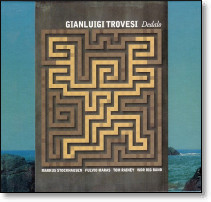 |
 |
Expanded blog post, January archive (in progress).
Tweet: Music Week: 23 albums, 7 A-list,
Music: Current count 39353 [39330] rated (+23), 42 [39] unrated (+3: 14 new, 28 old).
In early November, Francis Davis decided that he couldn't afford the time needed to run a 17th annual edition of his Jazz Critics Poll. He asked me to take over, as I had done most of the grunt work last year, and had helped out for many years before that. I agreed, figuring I'd spent a lot of time this year tracking music, even aggregating ratings, plus I had been procrastinating on other projects, so why not finish out the year doing a good turn? I organized a mailing list, and sent ballots out around November 13, with a December 12 deadline. I wound up collecting and compiling 151 ballots: down a bit from 2021's 156, but still a good showing. I worked out a deal with Arts Fuse to publish the results, and started to prepare them for publication.
Then I got Covid. While I was never very sick, it created a lot of stress as we tried to keep my wife from getting infected. Also producing a lot of stress was the terminal spiral of our dog Sadie, nearly 15, inherited 8 years ago with Liz Fink died (and as such, sort of a sacred trust). I totally missed our original delivery date, and didn't make any serious progress until New Year's. I finally pulled most of it together on Wednesday, and sent the pieces in Thursday. They were published Friday afternoon, about the same time we had a vet visit to put the dog down.
The archive index page is: The 17th Annual Francis Davis Jazz Poll: 2022. This includes links for the articles published at Arts Fuse:
- Tom Hull: The 17th Annual Francis Davis Jazz Poll: A Profusion of Geniuses
- Tom Hull: Looking Back at the Francis Davis Jazz Poll: Winners 2006-2022 and Memoirs of a Pollwatcher
- Francis Davis: My Poll Without Me
- Jazz Notables We Lost in 2022: This is something Francis did early on, and I revived last year, figuring it would be nice to have. It turns out there are better resources: Ken Franckling's Final Bars (among other pieces linked to in the article), and Andrey Henkin's Jazz Passings.
The two pieces by me were originally conceived of as four, but Bill Marx wanted to combine the tables with the essays. Francis's essay came in after I had handed all of my pieces in. He had seen all of my stuff by then.
The archive page also includes links for complete results (the Arts Fuse list stops at 50 new releases, and 20 reissues/historical), and for all of the individual voter ballots:
- New Albums
- Rara Avis (Reissues/Archival)
- Debuts
- Latin
- Vocals
- Critics: An index of all the critics and journalists who voted. Their ballots are also available in pages of 20, starting here.
I suppose I'll have more to say about the Poll, its results, and the process behind it, but at this point the combination of exhaustion and frustration probably makes that unwise. As I point out in one (or both) of the essays, the most important point for the poll is the data it generates, so please dig into that. You're bound to learn some things.
My listening of late has been very skewed. One thing that has frustrated me immensely, and is wholly my own fault, is that my system for filing CDs has completely broken down, to where I can't find anything. I should have spent the last several weeks rechecking the year's highest rated albums, but have failed in that almost completely. I wound up streaming the top three finishers, leaving Mary Halvorson's Amaryllis and Cécile McLorin Salvant's Ghost Song at my original B+(***) -- although Salvant's Kurt Weil cover is pretty great -- but I did bump up the grade for Immanuel Wilkins's The 7th Hand considerably. Below that, I could neither stream nor find my copy of Tyshawn Sorey's Mesmerism, another B+(***) first time around. I only had two of the top ten finishers made my A-list, and only three of the next ten (ok, four more from 21-30, three from 31-40, and two from 41-50).
Still, I emerged from this experience with more respect than ever for my fellow voters. I suspect that Francis was a bit reluctant to hand his baby over, because he regarded me as some kind of fringe critic. I found myself caring very little about the standings, as long as the ballots showed considerable thought, which they did.
So, instead of catching up with new jazz (as I did a lot of in November and especially December), I played old records, especially a lot of Coleman Hawkins, Ben Webster, and Lester Young. Then last week, I pulled up a list of unheard Penguin Guide 4-star albums, and thought I'd knock off a few. Hence, the reviews below are almost all modern but not recent jazz. No idea why I first landed on an Italian clarinetist, but I worked back from him, then returned to the top of the list.
I should mention that despite being so out of it, I did manage a Speaking of Which news revue yesterday. I also added three books to the Recent Reading roll, after several weeks of neglect.
Matt Taibbi did some brilliant work early in his career -- like his designation of presidential campaign coverage as "the stupid season," and his Wimblehack rankings of America's worst political journalists (note that Karen Tumulty has defended her title numerous times, not that I'm sure she's still the worst). But his Twitter feed has become little short of obnoxious, so I was thinking of dropping him -- but I figured the book looked like it had a sound premise, so maybe I should give him that chance. It is, indeed, a pretty good book, even if a little too both-sidesy. And sure, he goes a bit off the deep end on Russiagate, but that's more in his conclusions than in the reporting. And although Rachel Maddow (who I find seriously annoying) splits the cover, in the book she's relegated to an appendix.
Lepore's The Name of War is more about how Prince Philip's War (1675-76) has been remembered than what actually happened, which borders on genocide. Kaplan's 1959 makes a case for that year as one of pivotal change in America. So far, it's pretty convincing. A big concern of my memoir is how much America has changed, especially in the first twenty years of my life (the 1950s and 1960s). By the way, Kaplan is a Jazz Critics Poll voter, and he has a very detailed chapter on Kind of Blue in the book.
New records reviewed this week:
- 75 Dollar Bill: Social Music at Troost Vol. 3: (Other) People's Music (2015-17 [2022], self-released): [dl]: A-
Recent reissues, compilations, and vault discoveries:
- Chet Baker Trio: Live in Paris: The Radio France Recordings 1963-1964 (1963-64 [2022], Elemental, 2CD): [sp]: B+(*)
Old music:
- Arcana: The Last Wave (1995 [1996], DIW): [sp]: B+(***)
- Derek Bailey: Drop Me Off at 96th (1986-87 [1994], Scatter): [bc]: B+(**)
- Chet Baker: The Best Thing for You (1977 [1989], A&M): [sp]: A-
- Chet Baker Quartet Featuring Phil Markowitz: Live at Nick's (1978 [1989], Criss Cross): [r]: B+(***)
- Chet Baker Quintet Featuring Warne Marsh: Blues for a Reason (1984 [1985], Criss Cross): [r]: A-
- Chet Baker Trio Featuring Philip Catherine: Chet's Choice (1985 [1989], Criss Cross): [r]: A-
- Bernt Rosengren: Noters From Underground (1973 [1992], EMI Svenska): [sp]: B+(***)
- Bernt Rosengren: Stockholm Dues (1965 [1989], Columbia): [sp]: B+(**)
- Jimmy Rowles and George Mraz: Music's the Only Thing That's on My Mind (1976 [1981], Progressive): [sp]: B+(**)
- Jimmy Rowles: Shade and Light [The Definitive Black & Blue Sessions] (1978 [2001], Black & Blue): [sp]: B+(***)
- Terje Rypdal: Lux Aeterna (2000 [2002], ECM): [sp]: B-
- Terje Rypdal: After the Rain (1976, ECM): [sp]: B
- Randy Sandke and the New York Allstars: The Rediscovered Louis and Bix (1999 [2000], Nagel Heyer): [sp]: A-
- Louis Sclavis/Dominique Pifarély/Marc Ducret/Bruno Chevillon: Acoustic Quartet (1993 [1994], ECM): [sp]: B+(***)
- Louis Sclavis Sextet: Les Violences de Rameau (1995-96 [1996], ECM): [sp]: B+(**)
- Louis Sclavis Sextet: Ellington on the Air (1991-92 [2016], Ouch!): [sp]: B+(***)
- Louis Sclavis Quintet: L'Affrontement Des Prétendants (2000 [2001], ECM): [sp]: B+(***)
- Bud Shank: The Doctor Is In (1991 [1992], Candid): [sp]: B+(***)
- Tommy Smith: Spartacus (2000 [2001], Spartacus): [sp]: B+(**)
- Gianluigi Trovesi: Around Small Fairy Tales (1998, Soul Note): [sp]: B+(**)
- Gianluigi Trovesi/Gianni Coscia: In Cerca Di Cibo (1999 [2000], ECM): [sp]: B+(**)
- Gianluigi Trovesi: Dedalo (2001 [2002], Enja): [sp]: A-
- Gianluigi Trovesi Ottetto: Fugace (2002 [2003], ECM); [sp]: B+(***)
Grade (or other) changes:
- Immanuel Wilkins: The 7th Hand (2022, Blue Note): [sp]: [was: B+(*)] A- [sp]
Unpacking: Found in the mail last week:
- John Bailey: Time Bandits (Freedom Road) [01-23]
- Falkner Evans: Through the Lines (CAP) [01-20]
- Mimi Fox Organ Trio: One for Wes (Origin) [01-20]
- Metropolitan Jazz Octet: The Bowie Project (Origin) [01-20]
Sunday, January 08, 2023
Speaking of Which
After hustling to get the 17th Annual Francis Davis Jazz Poll posted on Friday, including my essay at Arts Fuse, I was pretty uncertain as to what to do next. Making matters worse was that same day the dog we inherited from the late Elizabeth Fink breathed her last. I was, at the time, figuring it'd be at least a week before I'd bother with a Music Week, much less a Speaking of Which, column. But lacking any other inspiration, I sat down and started collecting this. I had very little news exposure over the last month, first coming down with a fairly mild but disconcerting case of Covid, then finding our internet connection increasingly flaky. The latter was finally cured by a new cable modem, so as I started collecting this, I was pleased to find the system as solid and even faster than ever.
Of course, even without my usual news sources, I was aware of the comedy/horror show in the US House, mostly through the late night shows, which emphasized the comedy side. Still, I didn't see any lasting value in citing articles while the votes were going on. Now, of course, we can not only look back on the debacle, we can look forward to the dysfunctional future.
Eric Alterman: [01-06] George Santos a Liar? Small-Time When Compared to His Fellow Republicans.
Bernard Avishai: [01-07] Netanyahu's government takes a turn toward theocracy. Religious parties have often been part of ruling coalitions, but they've never been so prominent before, or as demanding. One obvious flashpoint is Itamar Ben Gvir, who's often run afoul of Israeli law, yet now is in charge of (selectively) enforcing it. More on Israel:
Richard Falk: [01-06] Decoding Israeli 'Extremism'.
Michael Plitnick: [01-08] Ben Gvir's Provocation at Al Aqsa Strains Middle Eastern Relations.
Brett Wilkins: [01-05] Israeli Government Accused of 'Assassinating Democracy' With Proposed Judiciary Overhaul.
Yumna Patel: [12-31] 231 Palestinians were killed in 2022. These are their stories.
Steve France: [01-08] New history challenges Israel's hold on western imagination: Review of Thomas Suarez: Palestine Hijacked: How Zionism Forged an Apartheid State From River to Sea.
Jonathan Chait: [01-04] 'Reactionary Centrism,' the Left's Hot New Insult for Liberals: "New jargon just dropped." I'm not much for jargon, let alone insults, but the definition offered here is a recognizable type: "someone who says they're politically neutral, but who usually punches left while sympathizing with the right." The first clause is pretty exactly how self-proclaimed centrists describe themselves. But centrism seems to extend to people who are not politically neutral -- who align with a major political party, which since the GOP purge mostly means Democrats these days -- but who recognize and try to balance multiple interests. If such people are honest, they should be arguing equally with both sides in favor of the other. In practice, though, a lot of them seem to relish fighting with the left, while letting all but the extreme right-wingers off the hook.
Hence there is a need to qualify centrist with some adjective other than fair or honest: reactionary might do the trick, but one should beware that it has two meanings. The root meaning is someone who reacts adversely (perhaps even violently) to change. That may apply to many centrists, especially those who worry that any change or challenge might rock the boat, leading to an even more vicious right-wing backlash. The other meaning, which is why the word is problematic, refers to that backlash itself.
Reactionaries are generally distinguished from conservatives because where the latter merely want to preserve their system and privileges, reactionaries want to radically change the system to restore their own expected privileges. On the left, we often refer to reactionaries as fascists, since that's the more vivid example. Chait is concerned, because he feels vulnerable as a centrist (albeit a Democratic one). I'd be inclined to cut him some slack, but the whole article seems like an excuse to kick the left for impolitic terminology, rather slight grounds that kind of make the point he's arguing against.
It seems to me that we would be better off trying to figure out real, viable solutions to problems, than simply mapping out who is left or right of whom. Not every left solution is ideal, but there are many to choose from, which isn't something you can say about a right that has drifted so far into its fantasies that centrists need to wake up and recognize that they're actually well left of center, and need to treat their comrades with more respect.
Neel Dhanesha: [01-06] California's deadly floods won't break the megadrought: "Atmospheric rivers are dumping rain on California. That's not a good thing." I'm pretty sure that the first time I ever heard "atmospheric river" was in Kim Stanley Robinson's The Ministry for the Future, which was "science fiction" two years ago. For more:
Matthew Cappuci/Brittany Shammas/Sabrina Mahli/Ben Brasch: [01-08] 500,000 lose power in California; next atmospheric river may be worse.
Connor Echols: [01-06] Diplomacy Watch: Russia takes aim at Western resolve: Aside from Russia announcing a 3-day ceasefire around the Orthodox Christmas -- a ploy that Ukraines were quick to dismiss -- very little to report here, devolving into the propaganda trope about "Western resolve." Little reason to fear there: American foreign policy seems largely under the thumb of the weapons cartel, who are having the time of their lives, feeding a voracious war without American casualties. While Ukraine still has dreams of regaining ground, Russia's war has largely become one of attrition, which despite inflicting real damage only intensifies Ukrainian resolve. (The German Battle of Britain is an example, although the hardship here may well be a bit worse.) More:
Connor Echols: [01-05] How Western tanks could change Ukraine's war effort. Recent arms promises to Ukraine have shifted toward tanks, both from France and the US. The thinking, at least on paper, is that tanks could lead a breakthrough in regaining occupied land. But a big tank advantage didn't help Russia much early in the war, and tanks have rarely been effective without sufficient air coverage, which Ukraine still lacks, so this may mostly be for show.
Jen Kirby: [06-06] Putin's so-called Christmas ceasefire, explained, or rationalized away, since Ukraine is unhappy to play along.
Paul Krugman: [01-06] What Ukraine Teaches Us About Power: I'm not sure I agree with his argument that there were no decisive battles in WWII -- what about Stalingrad? El Alamein? Midway? -- but he is quite right that in the end, it was economic power that prevailed. The key chart here is the one that compares GDP: while Russia towers over Ukraine, the Russian economy is but spare change compared to Europe and the US, which is what allows NATO to fund Ukraine without breaking a sweat.
Anatol Lieven: [01-06] Where the war in Ukraine could be headed in 2023.
Condoleezza Rice/Robert M Gates: [01-07] Time is not on Ukraine's side: Talk about people I have no interest in weighing in on anything! Title suggests a note of caution, that it would be good to negotiate sooner rather than later, but they're really urging escalation now to counter Putin: e.g., "For Putin, defeat is not an option. . . . Count on Putin to be patient to achieve his destiny." Perhaps they worry because they understand that Americans aren't very patient people. After all, they spent much of their public disservice prolonging wars most people had realized had gone sideways. What's missing is even the rudiments of a theory suggesting that their push for more weapons will do any good. Rather, they cite 1914, 1941, and 2001 as lessons that "unprovoked aggression and attacks on the rule of law and the international order cannot be ignored." And finally they resort to quoting Zelensky channeling Churchill: "Give us the tools, and we will finish the job." Surely they know that Churchill needed a lot more than tools (Lend-Lease) to defeat Nazi Germany. You'd also expect them to know that taking direct aim at a country with the "strategic depth" and nuclear arms of Russia is a fool's errand. But these two didn't get to the pinnacle of the US war machine by virtue of their grasp of reality (or history).
And just to nitpick, why 1914 but not 1939, or 1941 but not 1917? And why 2001 instead of 2003? The latter was the war they wanted in 2001, but had to postpone until they could snow us. And while Iraq fits their "unprovoked aggression" line to a tee, note that no other nation raised the alarm and came to Iraq's defense, and the aggressors failed anyway.
Ishaan Tharoor: [12-14] Ukraine's resilience sets a global standard. Not that I'm unimpressed, but I thought the global standard was set by Vietnam from before 1954 to 1975. I can give you other examples, including Finland and Afghanistan against Russia (as well as Afghanistan against the UK and the US). I'd also like to note that Ukraine's resistance against invasion was most impressive in the early days, before the US offered any significant weaponry, back when the US wanted to offer Zelensky "a ride," so he could become a propaganda tool, like Juan Guaidó.
Kelley Beaucar Vlahos: [01-06] What foreign policy elites really think about you: "If public opinion doesn't match up with the Washington program then it must be wrong, misunderstood, or worse, irrelevant." US foreign policy has always been tightly controlled by special interests, and usually ignored by parties struggling over the domestic economy. That didn't change with WWII, but before it was mostly trading companies, with resource (especially oil) companies gaining ground after 1900. What did change with WWII was the creation of the military-industrial complex, which shifted focus away from peace and stability to war and chaos. Since 2001, hardly any of the self-organized elites bothers to pretend otherwise. Anyone who thinks otherwise is ridiculed or worse. One of the clearest measures of this is US support for Israel, which has significantly lessened among the public, but if anything has hardened and become more reflexive among the elites. For more on their thinking, see:
Gregory Foster: [01-02] The zombification of US national security: "Time to drive a stake through the heart of these establishmentarian ideas, which are super dysfunctional but never seem to die." Sub-heds: The Fetishization of .mil-ism; The Enduring Gluttony of Defense Spending; The Canonization of Military Essence; The Delusion of Military Autarky; "The Capabilities-Commitments Conundrum; The Great Power Competition Subterfuge.
Thomas Geoghegan: [01-06] The Constitutional Case for Disarming the Debt Ceiling: "The Framers would have never tolerated debt-limit brinksmanship. It's time to put this terrible idea on trial. Related:
Zachary D Carter: [2021-10-01] The debt ceiling is an absurd problem. Only an absurd solution can save us. An old piece I just found a link to, because the problem it seeks to dispose of hasn't gone away, and is likely to get much worse now that the House is in session.
Luke Goldstein: [01-06] FTC Ban on Noncompetes Sets Up Huge Legal Fight. Having had my own bitter experience with a noncompete dictate, I'm very happy to see this rule. In my case it was a rare requirement only demanded of top management, and we were presumably compensated for our loss of freedom (though I'd argue I wasn't). It still left a great deal of bitterness, which probably capped any possibility I had of further advancement. Still, that's not what this is about. Rather, companies have since started demanding noncompete restrictions on even bottom-rung employees. Had that been in effect in my day, most of my job changes would have been prohibited. No surprise that groups like the Chamber of Commerce are up in arms over this rule. Employers are still nostalgic for the days when they had complete power over their workers.
Melissa Gira Grant: [01-03] Welcome to Ron DeSantis's 2024 Campaign Against "Wokes": One of the most important planks of Trump's 2016 campaign was the revolt he led against "political correctness." It worked because pretty much no one likes having their speech corrected, especially the object isn't a notorious slur and the substitute is awkward and tortured ("differently abled" is one I've been hit with). (Bill Maher, who may be a jerk but isn't a right-winger, made political incorrectness his calling card.) However, I'm not sure that attacking "wokes" (or even the more abstract "wokeness") is going to be such a winning strategy. The difference is that it's one thing to say that you have the right to be a bigot and to hold opinions many of us deem ignorant, and another to say that if you're not a bigot, and take offense at bigots, you're evil, and need to be throttled -- which is basically DeSantis's position. DeSantis doesn't stop at hitting liberal columnists for their "wokeness"; he's gone after big corporations that simply don't see the profit in racism.
Margaret Hartmann:
[01-06] John Bolton Announces 2024's Most Ridiculous Presidential Bid: Well, so far, anyway. "Is it possible that there are a few Republicans who hate Trump, love U.S. military intervention, and think Ron DeSantis is insufficiently musachioed?"
[12-27] The History of Donald Trump Pretending to Be Superman.
Ellen Ioanes: [01-07] North Korea's nuclear escalation, explained: The author seems more puzzled, but the right-wing turn in South Korea -- after the attempted thaw was largely sabotaged by Trump lieutenants like Bolton -- and also by the Biden administration's indifference to the issue. Despite occasional bouts of panic, North Korea's nuclear arsenal has never been, and will never be, a serious threat to the US (not that it couldn't annihilate South Korea and cause a lot of damage to Japan). From a military standpoint, nuclear weapons have never been worth a hill of beans, as the US has repeatedly found out in the series of military blunders that actually started in Korea. What is dangerous is trying to keep North Korea bottled up, when its leader have been trying so frantically for decades now to signal that they just want to be respected and treated decently.
Ben Jacobs: [01-07] How Kevin McCarthy (finally) became speaker of the House: "McCarthy was able to sway several far-right members of his party by agreeing to extraordinary concessions that will rewrite the politics of the House." Of course, there was never a chance that he wouldn't cave in to the far right, because he's not fundamentally opposed to them. While it was fun watching Republicans make fools of themselves, McCarthy's own demeanor during the ordeal suggests he was in on the scheme, which allowed him to shift effective power to the nihilists -- at this point, even "far right" doesn't do them justice, and "MAGA" isn't quite fair to Trump (not that he deserves any better) -- and also blame, when it all blows up. Jacobs has been covering this story in real time, so his older pieces are already dated: e.g., [01-03] Kevin McCarthy's once-in-a-century House speakership failure.
Margaret Carlson: [01-07] We Need to Talk About Kevin McCarthy. She prefers to call them "terrorists," where I went with "nihilists." Terrorists suggests they have principles but no ethics. I'm having trouble finding either.
Zak Cheney-Rice: [01-06] The Very Revealing 15 Minutes of Byron Donalds: Florida Republican Congressman, got a few votes for Speaker.
Jessica Corbett: [01-03] House Republicans Plan to Gut Ethics Office. "Today's Republican Party is rife with ethical transgressions. And it is now trying to make it much harder to hold members of Congress accountable to the standards of decency we expect."
Robert Draper: [01-07] From Gingrich to McCarthy, the Roots of Governance by Chaos. Draper knows this history because he's written a whole book on it: Weapons of Mass Delusion: When the Republican Party Lost Its Mind. "Mr. Gingrich began the zero-sum politics that mutated into the brand of the Tea Party and Trump M.A.G.A. Republicans and that presaged the raucous speaker battle in the House." Steve M asks: "So are we to infer that purging Donald Trump from out political life won't magically solve all of America's problems and return us to a prelapsarian state in which people of all political persuasions hold hands and dance merrily around maypoles in peace and harmony?" The core fact is that while all of the anti-McCarthy Republicans embraced Trump's Big Lie, none of them followed Trump's lead in acceding to McCarthy -- at least not until they got the concessions they wanted. Trump is not the faction's leader. He is at most a figurehead, as long as he plays the role of "useful idiot."
Michelle Goldberg: [01-04] Leopards Eat Kevin McCarthy's Face. Alternate title: "Kevin McCarthy is showing other Republicans how much there is to gain from pushing him around."
Jeffrey C Isaac: [01-08] McCarthy Did Not "Cave" to the Right-Wing. He Is the Right-Wing.
Ed Kilgore: [01-06] No, the Anti-McCarthy Rebels Don't Represent 'The American People'
Eric Levitz: [01-06] This Is Not What Democracy Looks Like; also [01-05] The GOP Is More Ungovernable Than Ever Before.
Christian Paz: [01-06] "We're going to make them pay a price": The liberal groups attacking the House GOP: One thing the nihilists have done has been to focus attention on themselves, and in reducing McCarthy to puppet status, that sense will only deepen all term long. That should give Democrats plenty of fodder to campaign on.
Richard H Pildes: [01-05] Why the Fringiest Fringe of the GOP Now Has So Much Power Over the Party.
Andrew Prokop: [01-06] What Kevin McCarthy's concessions to right-wingers would mean for a functioning Congress; which follows up on: [01-06] The deal that may make Kevin McCarthy speaker, explained. Earlier, Prokop also wrote [01-04] The real reason the chaos in the House should scare us.
Steve Reilly/Maggie Stevens: [01-06] Inside the right's plans to seize power in the new Congress.
Alex Shephard: [01-06] The Idiot Dream of the Unity Speaker: "McCarthy's epic struggle briefly gave the punditocracy a chance to indulge in one of their most persistent -- and persistently stupid -- fantasias." I must admit that I toyed with the idea: if McCarthy wanted to lead a House that could actually work with Biden and the Democrats on the limited range of legislation they might find consensus on, it might be easier to get 20 Democrats to sign on than surrender to the gang that thought they could hold him hostage. But McCarthy was never willing to break ranks with the far right, and you'd be hard-pressed to find a single House Republican willing to break ranks and support a compromise Democrat. The rank-and-file just purged nearly all of the Republicans who voted against Trump after January 6. There is literally no one left there. What I didn't consider was any of the outsider names bandied about here (Kasich, Hogan, Fred Upton). No one wants them.
Pierre Tristam: [01-08] Insurrection 2.0: The GOP Is Now a Party Focused on Sabotage and Destruction. Another novel turn of phrase here is "Matt Gaetz and his freedom contras." Doesn't have quite the ring of "terrorists" or "nihilists," not least because Gaetz might consider it praise.
Li Zhou: [07-07] McCarthy's speaker chaos should make Democrats more powerful. Two subheds here: "The GOP may well need Democratic help on key bills," and "Republican concessions could mean complete dysfunction." The latter seems much more likely to me, especially given how easily the nihilists can wreck McCarthy's speakership. They will demand that McCarthy play brinksmanship with Democrats, just as they will with McCarthy. The thing is, dysfunction is what the nihilists want, and it's far easier to achieve than their only preference beyond it, which is dictatorship.
David Cay Johnston: [12-31] Trump's Taxes Are the Best Case Yet for Putting Him in Prison. Author also wrote [12-27] Trump's Brazen Tax Cheating Revealed.
Whizy Kim: [01-04] The ultrarich are getting cozy in America's tax havens at everyone else's expense. One serious problem that hardly anyone talks about is how having multiple state and local tax jurisdictions creates intense competition to carve out tax loopholes, which are now so widespread and so lucrative that they drive many business decisions. Every carve-out is ultimately compensated by taxpayers with less leverage, either in higher taxes or in reduced services. I don't know how you could go about doing this, but a single national taxation system, when they distributes money down to state and local governments (which, if they have nothing better to spend it on, could ultimately rebate it to citizens), would wring the incentive for this out of the system, and in doing so would end much of the system's inherent corruption. As I recall, Nixon made a start back around 1970 with his "revenue sharing" program. It's strange that no one talks about this, even though a lot of federal money is routinely transferred to states and on down the line.
Ezra Klein: [01-08] The Dystopia We Fear Is Keeping Us From the Utopia We Deserve. Features a book of "reactionary futurism" by J Storrs Hall, Where Is My Flying Car?. The argument is that we got sidetracked in trying to conserve energy (or at least utilize it more efficiently), when we should have been figuring out how to create much more, enough to enable the wonders of a set of formerly futurist inventions like the flying car.
Robert Kuttner: [01-03] Who Will Talk Jay Powell off the Ledge? "He has committed the Fed to an interest rate course that will create a needless recession, and he refuses to admit that inflation is subsiding on its own." Again, Biden made a bad mistake appointing this Republican to a second term (much as Obama did with Bernanke, and Clinton with Greenspan). For what it's worth, I'm not terribly upset that he raised interest rates up off the floor: that's helped cool down house prices, and perhaps most important, it's slowed down speculative gambling on futures, which now seems to have been the main thing driving oil prices up. When several left-of-center economists were lobbying for Powell to get that second term, they pointed to his changed views. I can't tell you now what they thought he was thinking, but he seems to have clung to the hoariest of old views: that the only proof that inflation is declining is that unemployment is rising.
Ian Millhiser:
[01-04] How New York's governor turned a chance to reshape the courts into a debacle.
[12-29] The Supreme Court is manipulating its own calendar to lock GOP policies in place.
Charles P Pierce: [01-04] Given the Choice Between Free Money or Sicker Residents, Republicans Chose Sickness: "Their refusal to expand Medicaid is making it impossible for rural hospitals to stay in business." His examples are elsewhere, but this is particularly a problem here in Kansas -- where a significant majority want Medicaid expansion, but the Republicans they foolishly elect think it's smart politics to discredit Obamacare by turning away people who would benefit from it. Pierce, by the way, kicks out 2-3 useful posts every day.
Andrew Prokop: [11-02] Will 2023 be the year Donald Trump is indicted? I suspect, the less it matters, the more likely it becomes. Also on Trump:
Chris Cameron: [01-06] Trump Is Sued in Death of Capitol Police Officer After Jan. 6.
Nathan J Robinson: [12-06] Let ChatGPT Convert You to Socialism. I got interested in AI back in the 1980s, but haven't followed it since. One idea I had back then was to write a program that could crank out weekly letters to my mother. I would feed it a couple bullet points if I had any actual news, and it would mix them in with semi-random swatches of boilerplate. I was quite certain that she would be delighted, and none the wiser. That sort of thing is probably much closer to reality today, but will more likely be used by spammers trying to defraud you. On the other hand, I can imagine smarter programs that read your mail for you, sort out the dangerous and the merely crappy. Still, any arms race is likely to ultimately blow up. The best solution is to refashion the world to make predatory behavior less likely.
I haven't rekindled my interest in AI, so I know very little about where it's gone and how it's being used (other than my impression of badly). My nephew is pretty seriously into AI image generation: he's a graphic artist, and wants to see if he can use it to generate his style of art more efficiently. Robinson has done some of that too, but has focused more on ChatGPT, which he reports on here.
Jeffrey St Clair: [01-06] Roaming Charges: No Speaker, No Cry. "There are 100 members of the 'Progressive Caucus,' who capitulated within seconds to nearly every demand Pelosi made, and 40 members of the Freedom Caucus who don't mind waterboarding their own leader in public to get their way & ditching him if they don't." Also: "The problem is McCarthy himself is endorsed by Trump and the neo-fascist Marjorie Taylor-Greene, along with Freedom Caucus hardliners Jim Jordan and Louis Gohmert. In the face of a MAGA raid on the Capitol, McCarthy still voted to overturn the 2020 elections and boasted: 'I want you to watch Nancy Pelosi hand me that gavel. It will be hard not to hit her with it.'"
Eric Topol: [01-08] The coronavirus is speaking. It's saying it's not done with us.
New York Times: [01-08] Live Updates: Brazilian Authorities Clear Government Offices of Rioters, Official Says: Right-wing Brazilian president Jair Bolsonaro lost his re-election bid a couple months ago, so now as Luiz Inácio Lula da Silva has taken office, Bolsonaro's mob has decided to throw their own January 6 riot. For more, see Ellen Ioanes: [01-08] Bolsonaro supporters storm Brazil's seat of power.
Wednesday, January 04, 2023
Daily Log
The following is a piece I initially wrote as the ending of the first draft of the Jazz Critics Poll essay, but decided to kill:
Before I close, I want to say a few things about the Poll, the voters, the music, and the world.
Francis Davis created the Poll in 2006, when he was the principal jazz critic at the Village Voice. He started by inviting 30 of his colleagues to pick ten new releases and three reissues each, which he compiled into a table and declared Ornette Coleman the winner. I was invited to vote, as I was writing a Jazz Consumer Guide for the Voice at the time, but otherwise had nothing to do with the Poll until 2009, when I was asked to offload the task of posting the ballots. I've been peripherally involved ever since, but this year Davis asked me to take over the Poll. I've written a memoir that goes over this history in more detail, and I hope that sooner or later Davis will add a memoir of his own. But this year I've tried simply to be a caretaker: to keep his structure and rules, and to make minimal additions to the invite list. In the course of running this, I noticed several voters referring to this as the Francis Davis Jazz Poll, and I decided (with Davis's blessing) that should be the name.
In previous years we've often tacked the sponsoring publication's name onto the name, as in the NPR Jazz Critics Poll. But at least since 2009, the real meat of the Poll -- the individual ballots and the complete tallies -- have been on my on my server. They probably deserve a domain name of their own, and we should fill in missing bits of history, and make it easier to search from year to year -- all work I've often resolved to do once the Poll is published, then neglected for ten months before the panic of the next cycle starts up again. But Davis has always emphasized the continuity of the Poll by numbering them: hence, this is the 17th Annual.
The voter list expanded quickly after the first two years, hitting 120 in 2010, then gradually expanding to 156 in 2021. We slipped a bit to 151 this year, still a substantial number. We have, for instance, most of the writers who also vote in JazzTimes' critics poll (21 voters cite JazzTimes in their affiliations), yet this Poll regularly shades toward more adventurous albums. We have 22 voters from DownBeat; 11 from Jazziz; 16 from New York City Jazz Record; 11 from All About Jazz; but also 5 from Free Jazz Collective, and 7 from The Wire (most, but not all, Americans). Also, 5 from Arts Fuse, 4 from Cadence, 2 from Jazzwise, and numerous other publications, plus a few pure bloggers (like myself) and others simply identified as "freelance." We also have 26 voters affiliated with radio stations (17%).
We don't keep demographic statistics, but if we did I doubt that we'd see significant voting divergences by race, sex, or even age. But we are still very US-centric, at a time when Europe has achieved parity with America both as a market and as a source of musicians. Europe may even have pulled ahead, given higher levels of state support for education and the arts. And it's hard for us to even speak about jazz scenes in Asia, Africa, or Latin America, which surely exist given the occasional emigres who come to our attention. Jazz has become one of the world's few truly international treasures, which is something we Americans have been slow to realize.
Back during the 1990s jazz revival, Wynton Marsalis tried to define jazz as blues + swing, a straitjacket that even then ignored decades of post-bop, post-avant innovations far from the public spotlight, nurtured in the lofts of New York City and cultivated by small labels in Europe and Japan. Together with an academic tradition that was pioneered by people like George Russell, Cecil Taylor, and Anthony Braxton, jazz in the 21st century has flowered into an immensely rich and varied tableau that boggles the mind, even for those of us who have observed its evolution carefully for decades. It's hardly an accident that the 1990s generation of mainstream jazz stars are barely visible in the Poll charts today.
I pay very little attention the commerce side of jazz, so it may well be that the pandemic has cost musicians a lot of money, but it's hard to say the art has suffered at all. It's stimulated a bout of introspection, then the innovation of long-distance collaboration. And it has, if anything, accelerated product release schedules -- I've seen records appear a month after recording, rather than the usual year, and online can happen even faster. So whatever else may go wrong with the world, we won't run short of music.
 |
Dec 2022 |